

Yacht Crew Positions and Salaries
The organisational structure onboard a superyacht follows a strong hierarchy based upon a military model. Exact job duties and lines of authority are set and strictly adhered to. This hierarchy is followed on the vast majority of yachts; however, responsibilities of the crew on smaller yachts are often merged.
There are four departments on yachts with clear organisational structure:
- Deck (including Bridge) – Safety, passage delivery, maintenance of the yacht's exterior, guest outdoor activities
- Engineering – Safety and smooth operational running of the yacht
- Interior – Housekeeping, guest wellbeing, activities, accounting
- Galley – Food preparation, stock control, hygiene, galley maintenance
The top of the hierarchy on each yacht is the Captain , who reports to the yacht owner either directly, or through a representative or a yacht management company.
Salaries vary and depend on the yacht size, use, type and location, as well as the experience and qualification of the crew member. We included typical salaries of crew based on the data available from reputable industry sources, as well as our research of over 60,000 crew registered with us.
Deck Positions
The primary duty of the Captain is the overall safe manning and operation of the yacht. Yacht Captain is responsible for the vessel, yacht crew, owner and guests, including personnel management, shipyard/project management, legal and regulatory compliance, accounting, achieving owners' objectives, and answers to the owner regarding all decisions.
| Captain | €4,000 - €15,000 |
First Mate / Chief Officer
The First Mate or Chief Officer is the right hand of the Captain. Takes command of the yacht from Captain when required. Shares Captain's responsibilities as required.
| Chief Officer | €3,000 - €13,500 |
| 2nd Officer | €3,000 - €8,000 |
| 3rd Officer | €2,500 - €6,000 |
| Security Officer | €3,000 - €5,000 |
Bosun / Lead Deckhand
Bosuns are usually experienced Deckhands with additional responsibilities. They are in charge of Deckhands onboard the yacht and often spend a lot of time with guests during outdoor activities. The Bosun is normally the main tender driver.
| Mate | €2,500 - €6,000 |
| Bosun | €2,500 - €5,500 |
| Lead Deckhand | €2,500 - €5,000 |
Responsible for the maintenance of the exterior of the yacht and keeping it in pristine condition at all times. Deckhands also assist in maintaining, cleaning and operating yacht's tenders.
| Junior Deckhand | €2,000 - €3,000 |
| Carpenter | €3,000 - €4,000 |
Engineering Positions
Chief engineer.
Responsible for the Engineering Department and for all technical aspects of the boat and its equipment. The Chief Engineer's duties include overseeing all mechanical and electrical operations, ensuring all planned maintenance takes place and liaising with subcontractors.
| Chief Engineer | €5,000 - €15,000 |
Second / Third Engineer
The Second and Third Engineers report directly to the Chief Engineer. They assist in maintaining all mechanical and electrical operations of the yacht.
| 2nd Engineer | €3,000 - €10,000 |
| 3rd Engineer | €2,500 - €6,500 |
| Sole Engineer | €3,500 - €12,000 |
| Motorman | €2,500 - €4,000 |
ETO / AV/IT Officer
Electro-Technical Officer (ETO) and AV/IT Officer are in charge of daily maintenance of all electronic, computer, audio/visual and communications equipment and their efficient operation. This includes the radio, radar, telephones, satellite communications, navigation systems, computers, Internet connection, interior equipment (TVs, sound systems), etc.
| ETO | €4,000 - €8,000 |
| AV/IT Officer | €4,000 - €7,000 |
Electrician
The Electrician is responsible for maintenance of all electrical circuits onboard the vessel, circuit breakers, switches, lighting, batteries, etc.
| Electrician | €4,000 - €6,500 |
This is an administrative position on large yachts. The Purser is responsible for all operations in the interior department, including inventory, purchasing, provisioning, accounting, organising guest activities, and assisting the Captain with the yachts paperwork.
| Purser | €5,000 - €9,000 |
Chief Steward(ess)
Duties are similar to those of other Steward(ess)es onboard the boat, but on a more senior level, including managing the interior department and training. Small yachts with less crew do not have a Purser. The Chief Steward(ess) is in charge of all the responsibilities normally carried out by the Purser on large yachts.
| Chief Steward(ess) | €4,500 - €8,500 |
| Interior Manager | €4,000 - €8,000 |
| Head of Servicer | €4,000 - €7,000 |
| Head Housekeeper | €3,000 - €5,500 |
| Spa Manager | €3,500 - €5,500 |
Steward(ess)
Steward's or Stewardess's main responsibility is to maintain the interior of the yacht and provide the highest standard of care to the owner and guests. They serve food and drinks, prepare guest activities, pack and unpack luggage and are on call for anything that the guests want anytime day or night. On some yachts, they help the deck crew moor the yacht.
| 2nd Steward(ess) | €3,000 - €6,500 |
| 3rd Steward(ess) | €2,500 - €4,000 |
| Spa Steward(ess) | €3,000 - €4,000 |
| Service Steward(ess) | €2,500 - €5,000 |
| Housekeeping Steward(ess) | €2,500 - €4,000 |
| Laundry Steward(ess) | €2,500 - €4,000 |
| Sole Steward(ess) | €3,000 - €6,000 |
| Junior Steward(ess) | €2,000 - €3,500 |
| Butler | €3,500 - €6,000 |
| Stew/Deck | €2,500 - €4,000 |
The Head/Executive Chef onboard a luxury superyacht is a culinary trained professional responsible for the overall management of the galley department on larger yachts, including guest and crew meals, provisioning, food safety, maintaining strict hygiene standards and financial/budgetary administration.
| Head Chef | €6,000 - €10,000 |
Assists the Head Chef in all aspects of galley duties. The Sous Chef may be required to independently provide crew meals or guest meals at the direction of the Head Chef.
| Sous Chef | €3,500 - €8,000 |
Crew Chef / Cook
Large yachts employ a separate crew and guest chef. The Crew chef provides meals for the crew.
| Crew Chef / Cook | €3,000 - €5,000 |
| Sole Chef | €3,500 - €9,000 |
| Stew / Cook | €2,000 - €4,500 |
Other Positions
Many yachts, especially the large ones, have several additional positions. These are often combined with primary roles, e.g. Stewardess / Masseuse or Deckhand / Dive Instructor . The most common are:
| Beautician | €3,000 - €4,000 |
| Hairdresser | €3,000 - €4,000 |
| Massage Therapist | €2,000 - €4,500 |
| Nurse | €3,000 - €4,500 |
| Dive Instructor | €3,000 - €6,000 |
Career Advice:
Email address:
Remember me Forgotten password?
Password Reset
Enter your email address and we will email you a password reset link.
Email address:

Impartial training and careers advice
Call us: +441983 280 641
+441983 280 641

- How to become a Yachtie
So you’re thinking about becoming a Yachtie?
You may have a friend or relative who already works in the industry, or you have watched TV programmes like Below Deck , you know working on a yacht is the right for you, but where do you start?
With the potential to earn great money, travel, and work with loads of like-minded people, it’s not surprising this job ticks a lot of boxes for many people.
Becoming a Yachtie and getting paid to work on luxury yachts may seem like a job and industry that only the elite can have access to, or it just seems too confusing to start.
However, with an understanding of the requirements, certification, and having some expectations of what job role you should be looking for, starting work as a Yachtie will not seem so daunting.
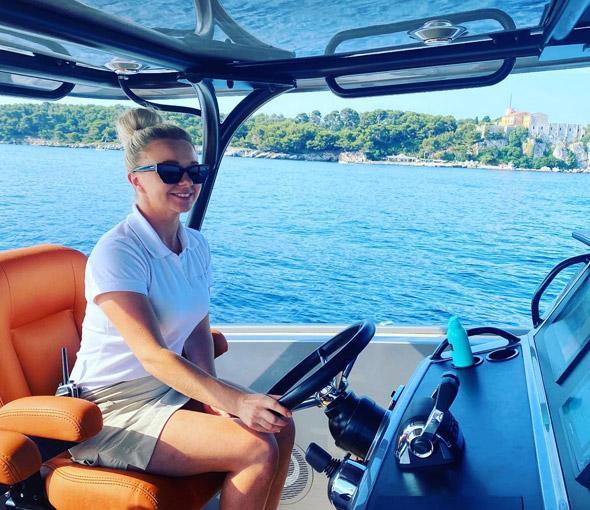
What is a Yachtie?
Before we go any further, let’s make sure we are all singing off the same hymn sheet.
A Yachtie is a broad term used to describe anyone who works on a yacht. More specifically, it has become the term for people working as yacht crew on superyachts.
A superyacht is a very large boat that is extremely luxurious and often owned by multi millionaires and billionaires.
These Yachties who work on superyachts hold a number of different positions. Most Yachties will start their superyacht career working as a Deckhand or Stewardess. With more experience and responsibilities, your role will change as you progress up the career ladder.
It’s worth noting there are other types of yachting and Yachties. The other kind of ‘Yachtie’ could describe those who hold their Yachtmaster qualification and have jobs like skipper charter boats.
Job roles for new Yachties
Yachties new to the industry (also known as ‘Green’ Yachties) will traditionally apply for entry levels roles, which are Yacht Deckhands or Yacht Stewardesses.
These are both very different jobs, so you need to be sure which one you want to do and start training for that career path.
Yacht Stewardess (Stew)
A Stewardess, or Steward , looks after the interior of the yacht. This means anything that happens inside the boat, you will be responsible for it.
Think of any job in the hospitality industry and then combine it into one role on a yacht, that is what you will be doing.
From making beds, doing the laundry, cleaning, serving food, and hosting dinner, you will do it all to a 5-star standard. Anything less than perfect, and your guests won’t be satisfied.
It’s the small things that make the difference between high standards and exceptional standards. You must have a great eye for detail and be able to make sure no stone is left unturned. Everything on board the ship must be 100% perfect at all times.
You will be reporting to Chief Stew, who will be your manager and give you your task list. After a good few seasons as a green Stewardess, you will have enough experience and confidence to apply for Chief Stewardess roles.
Yacht Deckhand
In contrast to the Stewardess role, Deckhands look after the exterior of the boat.
Predominantly a male role, Deckhands will do everything from general maintenance to cleaning the teak deck, looking after the toys (Jet Skis, etc.), and even driving the tenders.
Deckhands should know how a yacht operates, the basic terminology used onboard, how to tie knots, and loads and loads of enthusiasm.
Deckhands may also dip in and out of helping the Stewardesses, and it isn’t uncommon for Deckhands to give a hand during busy evening meal preparation and service.

5 steps to Becoming a Yachtie
With an understanding of the job roles available, you can now decide which one best suits you. With the right attitude, qualifications, and knowing where to look for work, becoming a Yachtie is achievable for anyone who wants it.
- Have the right attitude
- Pass an ENG1 medical
- Complete STCW Basic Safety Training
- Gain experience
- Go to a superyacht marina
1. Have the right attitude
Along with gaining the correct qualifications to prove your competence, to become a Yachtie, you must have certain characteristics to thrive in this industry.
Yachties have to be well presented, articulate, know how to take orders, and be able to work hard, all with a smile and enthusiasm. You have to be able to work incredibly long hours, sometimes under stressful conditions, without losing your patience.
Having a job on a superyacht may sound glamorous, but if it’s your 10th day working in a row and you’ve got your head stuck down a toilet trying to clean it, you may want to think again. To become a Yachtie, you have to be happy with spending a lot of time away from home without seeing your friends and family. This may all seem obvious, but this situation does not suit everyone, and without careful consideration of the negatives, you will leave this industry quicker than when you arrived.
2. Pass ENG1 Medical
The first actionable step you need to take to become a Yachtie is gaining an ENG1 medical certificate. The ENG1 medical is an examination by an approved MCA (Maritime and Coastguard Agency) Doctor to make sure you are fit and able to work at sea.
Every single person working at sea must have an ENG1 medical certificate , without this, you are not able to start working on superyachts. The examination will take around 45 minutes, during which the doctor will go through a checklist to make sure you have no underlying health conditions that may impact the safety of you or anyone else on board the ship.
The most common reason new yachties fail the ENG1 is colour blindness. Surprisingly many people can go through their whole life without knowing they are colour blind. However, on board a ship, this can have huge implications. If you cannot identify signals and lights correctly, it will be impossible for you to help navigate the ship in an emergency. Unfortunately, this means you cannot start work as a Yachtie.
3. Complete STCW Basic Safety Training
Another requirement for working at sea is completing STCW Basic Safety Training . Similar to the ENG1 you can only get a job on a yacht if you have the STCW certificate.
STCW stands for ‘Standards of Training, Certification and Watchkeeping’. It is to make sure that all Seafarers have an understanding of what to do in an emergency and are aware of the procedures required.
STCW Courses are action-packed and quite a bit of fun. From fire fighting to sea survival, you will get stuck in learning, and learn loads of new skills.
4. Gain experience
If you are lucky enough to have a job offer on a superyacht, then having your ENG1 and STCW certificates will be enough.
Don’t worry if you haven’t already got a job offer, it’s quite normal to go through all these steps and not have a job lined up yet. If this is the case, gaining more experience and qualifications is a good idea to give you a competitive advantage over anyone else applying for the same job role.
This is achieved through signing up to a Deckhand or Stewardess Course. On these courses, you will get your standard STCW certificate and a list of extra qualifications demonstrating your competence, ability, and commitment to the industry.
Deckhands will learn how to drive a small yacht, engine maintenance, general yacht repair, and how to clean teak properly. Stewardesses will understand wine and how to serve it, the art of flower arranging, and how to drive a powerboat.
5. Go to a superyacht marina
After you have completed your superyacht training, now is the time to head out to France and look for work. Along with signing up to yacht crew recruitment agencies, going to one of the main superyacht marinas and handing out your CV to Captains is a great way to find work. This is known as dockwalking.
If you complete your Superyacht Course with us, you will have the option of signing up to our recruitment day in Antibes, France. We head out to France as a group, talk you through the process and offer you our industry contacts.
This is a great way to start your journey, and all our students find work in no time.
How much do Yachties make?
So you’ve heard you can make a good amount of money working on superyachts? Along with the travel, the great salary is why many people decide to become a Yachtie.
Like a job within any industry, salary varies. A Superyacht will agree on a crew salary budget with the owner of the yacht.
If you are just starting out, you can expect a salary of around €2,200 – €3,200 per month. However, the industry standard is €2,500 per month. Once you gain more experience and qualifications, your salary will increase.
When you look at the salary at face value, it looks great but not incredible, however when you are at sea, you have zero outgoings. Working on a yacht means you don’t have to pay rent, bills, or buy food which will save you heaps of money compared with working at home.
If you want to see the salaries of all yacht crew, check out our Salary Guide.
Do Yachties pay taxes?
Another reason why the salary is so appealing is that in most cases Yachties don’t have to pay tax.
This is a government scheme called the Seafarers Earning Deduction , and providing you are eligible, Yachties can keep 100% of their earnings.
To be able to apply for Seafarers Earning Deduction, you must be working on a ship outside of UK waters for a period of 365 days. This doesn’t mean you have to spend a whole year at once away from home, rather you can only apply once all the days you work on a yacht adds up to 365.
Being able to understand this tax scheme will be hugely beneficial before you start working on a Superyacht.
Download our free Guide
Want to know more about working on a Superyacht, please download our free guide .
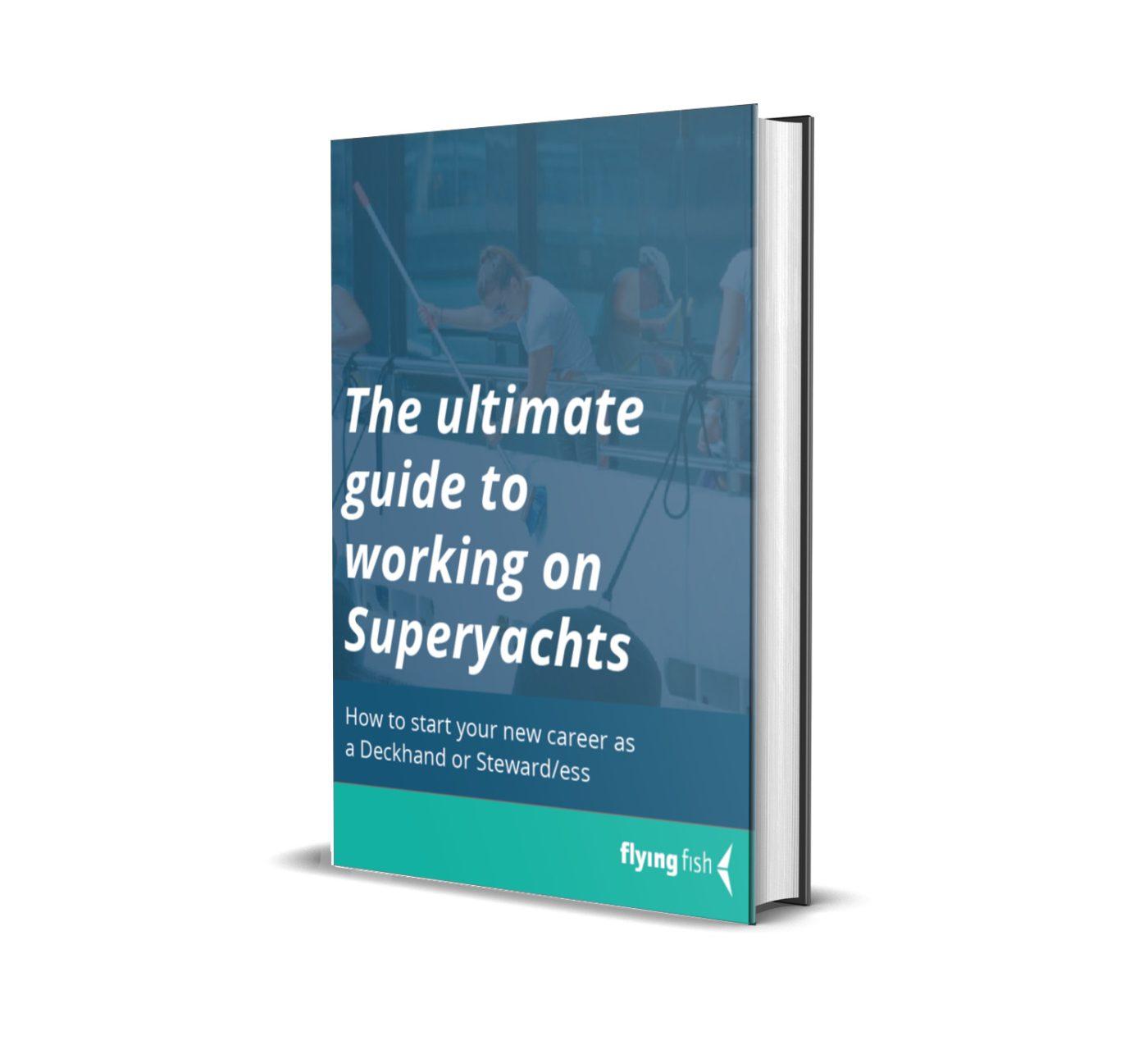
Related articles

- Seafarers Tax
5 ways to ensure your SED claim is rock solid
The Seafarers’ Earnings Deduction, often referred to as the SED, is a tax legislation that enables seafarers to claim back their UK income tax. It a...

Do I need to pay off my Student loan if I work on a Superyacht?
Good question! First, let me say that the information below is aimed at people who have studied in the UK and took out a Student Loan to cover course ...

Have I got the right experience to work in yachting?
If you’re thinking about working on board a Superyacht, we share the skills and experience you need and how to get into the yachting industry in thi...
- Brokerage New Construction How to Buy How to Sell
- Yacht Fleet Yacht Catalog Charter Marketing Destination Guides
- Financial Services Payroll & Accounting Payroll Service Process Logistical Support Admin Services Crew Admin
- Job Descriptions Crew FAQ
- About Sitemap
- Yacht Department Directory
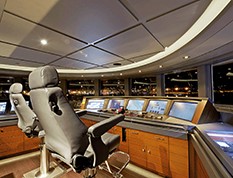
Engineering

About the Yacht Positions
The diversity and opportunities to work aboard superyachts around the world are endless. The yachts range in size from 60ft to 600ft with crew of 1 - 100 crew members in four primary departments. Each department is responsible for a unique set of tasks aboard and is suited for individuals with specific skillsets and experience. Explore professions within each department.
Looking For Work ?

Essential Guides
Ocean Mapping
New to Yachting
WORKING ON BOARD A YACHT
Yacht crew positions: understanding different roles and responsibilities.

Yachting is an unique industry and a career in yachting will take you on the adventure of a lifetime. Yacht crew work and live on some of the world’s most advanced superyachts that they help operate and maintain.
Discover the different opportunities available on board a yacht.
Working on board a yacht takes a variety of skills and dedication. Yacht crew share both their work and living space with each other and together they aim to deliver the best holiday experience to yacht owners and their guests. The deck and engineering crew need to obtain various certifications for safe manning of the vessel and the interior team will be trained and ready to deliver service on the highest level. All this will be compensated with an excellent salary and numerous benefits that come with each position.
The exact positions available on board each yacht depend on its size and operational structure. Below you can find descriptions for each of the positions available to yacht crew.
As recruiters, we are your partner in recruitment. We are here to guide you through the recruitment process and offer our expertise to help you land your ideal job. Our recruiters are solution driven; they have a voice, an opinion and will champion you for the right jobs on the best yachts with the finest captains and crew. If you are looking to work on board a yacht, get in touch with our recruiters via your YPI CREW profile .
YACHT CREW JOBS
Superyacht and yacht crew positions.
Deck Department

Yacht Captain

Chief Officer

Second Officer

Third Officer

Engineering Department

Chief Engineer

AV/IT Officer

Interior Department

Head of Service

Head of Housekeeping

Steward/dess
Specialist Positions

Spa Manager

Spa Therapist

Personal Trainer

Hairdresser
.jpg)
YACHT CREW GUIDES
Yacht crew salary guide.

DOWNLOAD FREE YACHTING CV TEMPLATES
Let’s get started. call us on +33 (0)4 92 90 46 10 or email us., our mission, vision and values, mlc 2006 compliance, essential guides, yacht crew positions.
Interior Crew
Personal Trainer & Yoga Instructor
Mandatory Certificates
B1/b2 visa information, how to write a memorable cv, how to prepare for an interview, yachting seasons, yacht crew salary guide, is yachting the right choice for me, cv templates, ocean mapping, new to yachting.
+33 (0)4 92 90 46 10
Work on a Boat
Find Yacht Jobs, Crew Agencies, Crew Houses, and Cruise Ship Jobs
Have you ever wanted to work on a boat? Get paid to sail around the world? Work on a cruise ship? Work at a boat show? This site is a growing resource of links and information about working on boats!
There are several types of boats that you can work on that we have resources for on this site:
- Motor yachts
- Cruise ships
Get a Job on a Yacht
Working on a sailboat or super yacht can be an exciting job. It is a great way to see more of the world.

The yacht crewing section of this web site is the largest section. You can find dozens of links to crew lists, crew agencies, charter companies to work for, and general crewing information.
Get a Job on a Cruise Ship
Many people have a dream of working on a cruise ship. More information about working on cruise ships can be found on our cruise ship jobs page.
Hope you enjoy the site and find it useful. See you in the crew forum.
- Cruise Ship Jobs
- Yacht Crew Lists
- Work on Boats
- Crew Agencies
- Crew Houses
- Crew Resources
- Crewing Books
- Yacht Job Safety
- Yacht Crewing Schools
- Yacht Chef Jobs
- Yacht Charter Companies
- Travel Insurance
Join Our Community!

Disclaimer: Listing on this web site does not constitute endorsement. We are not responsible for content or services offered on external sites. Before paying for any crew placement services or getting on any boat, make sure you have researched the situation thoroughly. See also the page about yacht job scams .

All guides , Deckhand , Stewardess , Yacht Jobs
How to become a yachtie.
- November 1, 2023
“Ahoy there, future yachties! Are you ready to embark on an exciting and luxurious career on the high seas?” If the idea of working on a yacht, traveling to exotic locations, and catering to the needs of the rich and famous sounds like a dream come true, then you’re in the right place. In this comprehensive guide, we’ll explore the ins and outs of the yachting industry, from the essential skills and certifications needed to make a splash, to tips on building a strong resume and making valuable connections in the yachting world. We’ll also discuss the various career paths available, from starting out as a deckhand to eventually taking the helm as a captain. Finally, we’ll delve into the yachtie lifestyle, and how to strike the perfect balance between work and play while living and working on the world’s most luxurious vessels. So grab your deck shoes and let’s set sail on this exciting journey to becoming a yachtie!

1. Discovering the Yachting Industry: Opportunities and Requirements
The yachting industry offers a wide range of career opportunities for those who are passionate about the sea and luxury vessels. From deckhands and engineers to chefs and stewardesses, there is a position for every skill set and interest. To begin your journey in this exciting field, it is essential to understand the requirements and qualifications needed for each role. This will help you determine which path is best suited for your skills and aspirations.
Before diving into the world of yachting, it is crucial to familiarize yourself with the certifications and training necessary for your desired position. For example, aspiring deckhands should obtain their STCW (Standards of Training, Certification, and Watchkeeping) certification, while engineers may need to complete an MCA (Maritime and Coastguard Agency) approved course. Additionally, it is essential to have a valid passport, a seafarer’s medical certificate, and potentially a visa, depending on the country you plan to work in.
Once you have acquired the necessary qualifications, it is time to start networking and job hunting . Many yachties find their first job through word-of-mouth or by connecting with others in the industry. Attending boat shows, yachting events, and joining online forums can help you make valuable connections and learn about job openings. Furthermore, registering with a reputable yacht crew agency can increase your chances of finding the perfect position. Remember to create a professional CV and be prepared for interviews, as competition in the yachting industry can be fierce.
2. Essential Skills and Certifications for Aspiring Yachties
Entering the world of yachting requires a unique set of skills and qualifications, which are essential for ensuring a successful career. Obtaining the necessary certifications is a crucial step in becoming a yachtie, as these credentials demonstrate your competence and commitment to the industry. Some of the most important certifications include the STCW (Standards of Training, Certification, and Watchkeeping) Basic Safety Training, which covers essential safety and survival skills, and the ENG1 Medical Certificate, which confirms your fitness to work at sea.
Aside from certifications, aspiring yachties should also focus on developing their soft skills and practical abilities . Excellent communication, teamwork, and problem-solving skills are highly valued in the yachting industry, as crew members must work closely together to ensure smooth operations and guest satisfaction. Additionally, proficiency in various tasks such as cooking, cleaning, and maintenance is crucial, as yachties are often expected to perform a wide range of duties on board. By honing these skills and obtaining the necessary certifications, you will be well on your way to a rewarding career as a yachtie.
3. Building a Strong Resume: Tips for Landing Your First Yacht Job
As a newcomer to the yachting industry, it’s essential to create a compelling resume that showcases your skills, experience, and passion for the job. Start by highlighting any relevant experience you may have, such as working in hospitality, customer service, or a related field. If you have any certifications or licenses, be sure to include them as well. When crafting your resume, consider the following tips:
- Keep it concise: Aim for a one-page resume that’s easy to read and understand.
- Use a professional format: Choose a clean, modern design that highlights your most relevant information.
- Include a personal statement: Write a brief introduction that explains your interest in the yachting industry and what makes you a great candidate for the job.
Networking is a crucial aspect of landing your first yacht job, so attend industry events and connect with professionals in the field. This can help you learn about job opportunities, gain valuable insights, and make a lasting impression on potential employers. Additionally, consider joining online forums and social media groups dedicated to yachting to expand your network and stay informed about the latest industry news.
Finally, be persistent and proactive in your job search. Apply to multiple positions, even if they’re not your ideal role, as this can help you gain experience and make connections within the industry. Don’t be discouraged by rejection – it’s a natural part of the job search process. Instead, use it as an opportunity to learn and improve your resume and interview skills. With determination and a strong resume, you’ll be well on your way to becoming a successful yachtie.
4. Networking in the Yachting World: Making Connections that Matter
Establishing a strong network is crucial for success in the yachting industry. Building relationships with fellow yachties, captains, and industry professionals can open doors to new opportunities and help you advance in your career. Attend industry events, such as boat shows and yacht crew meetups, to meet like-minded individuals and expand your network. Don’t be afraid to introduce yourself and engage in conversations, as this can lead to valuable connections and potential job offers.
Utilizing social media platforms is another effective way to network in the yachting world. Join Facebook groups, follow industry influencers on Instagram, and connect with professionals on LinkedIn to stay informed about the latest news and job openings. Be active in these online communities by sharing your experiences, asking questions, and offering advice. This will not only help you learn from others but also showcase your expertise and passion for the industry.
Finally, consider creating a checklist to track your networking efforts and ensure you’re making the most of every opportunity. This can include goals such as attending a certain number of events per month, connecting with a specific number of professionals online, or following up with contacts you’ve made. By setting measurable objectives and regularly reviewing your progress, you’ll be well on your way to building a powerful network in the yachting world.
5. Climbing the Yachtie Career Ladder: From Deckhand to Captain
Embarking on a career in the yachting industry can be both rewarding and challenging. One of the key aspects to success is understanding the various roles on a yacht and how to progress from one position to another. Starting as a deckhand , you will gain valuable experience and skills that will serve as the foundation for your future growth in the industry. As you continue to learn and develop your abilities, you will have the opportunity to advance to higher positions, such as mate, engineer, or even captain.
One of the most important factors in climbing the yachtie career ladder is gaining relevant qualifications and certifications . For example, obtaining your STCW (Standards of Training, Certification, and Watchkeeping) certificate is essential for working on any yacht. Additionally, pursuing specialized training in areas such as navigation, engineering, or hospitality can significantly increase your chances of securing a higher position on a yacht. It is also crucial to network within the industry, as many job opportunities are found through personal connections and recommendations.
Lastly, developing a strong work ethic and demonstrating professionalism at all times will set you apart from other crew members. This includes being punctual, maintaining a positive attitude, and taking pride in your work. As you continue to excel in your role and gain the trust of your captain and fellow crew members, you will be well on your way to climbing the yachtie career ladder and achieving your ultimate goal of becoming a captain.
6. Living the Yachtie Lifestyle: Balancing Work and Play on the High Seas
Embracing the yachtie lifestyle requires a delicate balance between hard work and enjoying the perks of the job. While the days can be long and demanding, the rewards are often worth the effort. To maintain this equilibrium, it’s essential to develop a routine that allows you to excel in your duties while still finding time for relaxation and personal growth. A checklist can be a helpful tool to ensure you’re staying on track with your responsibilities and making the most of your downtime.
One of the key aspects of living the yachtie lifestyle is learning how to adapt to the unique challenges of working on a yacht. This includes mastering the art of multitasking, being prepared for unexpected situations, and maintaining a positive attitude even when the going gets tough. By staying organized and focused, you’ll be able to enjoy the incredible experiences that come with working on a luxury yacht, such as exploring exotic destinations, meeting new people, and indulging in world-class cuisine. Remember, the key to success in this industry is finding the right balance between work and play, so make sure to take advantage of the opportunities that come your way.
Frequently Asked Questions
1. what are the different roles available on a yacht, 2. how long does it take to become a qualified yachtie, 3. can i work on a yacht without prior experience in the industry, 4. what is the salary range for yacht crew members, 5. what are the typical working hours and conditions for yacht crew members.

Yacht Deckhand Premium STCW

Yacht Stewardess Premium STCW

Yacht Stewardess Full STCW

Superyacht Deckhand Full STCW

Top 10 best places to find a Yacht job in the Med 2024?

Exploring Yacht Stewardess Training in Fort Lauderdale: A Comprehensive Guide

All You Need to Know About Yacht Stewardess Training in United States

Yacht Stewardess Training in Florida: Launch Your Yachting Career

Understanding Food Hygiene Level 2 For Yacht Crew

An Ultimate Guide to ENG1 Medical Certificate for Yacht

STCW Basic Safety Training United States
Superyacht crew training europe.

July Training Fully Booked – 2 last spots for August with code yachtie50
Get free yacht cv and yacht job offers
The Full List of Yacht Crew & Staff

Published on November 22, 2016
Working on board a super yacht is a fascinating career. Life at sea, whilst demanding can be an extremely lucrative and exciting career path. But do you know the full list of yacht crew and staff? And what it takes to work on a yacht?
Whilst it is more suited to the younger generations, the process and types of crew involved with running these magnificent vessels is impressive.
Of course, the types of staff required for each vessel vary depending on the size of yacht and the type of yacht. In the super yacht world, it is likely that a large number of the below crew will be involved for each yacht. Wow, the staff required to operate a yacht... Share on X
Here is an overview of the crew involved in building, maintaining, and running these floating mansions:

As captain it is you are responsible for the crew, guests and vessel. Every crew member and even visiting guests fall under your command and you have the final say on all yacht decisions. Alongside your qualifications , expect to be paid a high salary in return for your professional service.
Captain/Engineer – A multi-faceted role, this combines the skills of captain with Engineer. A highly sought-after type of crew, they will straddle the skills for both captaining the boat and ensuring engineering issues are dealt with whilst at sea.
1st Officer – Sometimes known as Chief Officer or Chief Mate is second in command to the Captain and manages all the deck crew including the Bosun, Deckhand and any second or third officers. You would be required to undertake bridge duty and thus have a good range of qualifications and skills.
2nd Officer – Is the second-ranking position to the 1st Officer. You would require a good level of qualifications and skills to achieve this position. A 2nd Officer may also be designated in additional areas such as security, medical, or safety, depending on background and specific skills.
3rd Officer – Is the third-ranking position to the 2nd Officer. Qualifications and skills as per the other officer roles are required.
Chase Boat Captain – A chase boat is a vessel which does not live on the main yacht and often has their own crew. These can be towed, driven separately, or berthed in a convenient location.
Chase boats are becoming very popular due to restrictions in tender garage space. As the name would suggest this role refers to the captain who is in charge of the chase boat and subsequent crew.
O.O.W (Officer On Watch) – This is a deck officer in charge of keeping watch on the ships bridge and overseeing navigation whilst on duty. The OOW ensures the ship complies with all COLREGS and safety protocols. This position requires additional qualifications in order to help perform the said duties.
Bosun – Sometimes referred to as the Leading Hand or Senior Deckhand, the Bosun is an experienced deckhand most likely able to take on additional and extra responsibilities. They tend to be the main tender driver and take additional responsibilities in security. Like a deckhand, less qualifications are required, but flexibility and the ability to take direction and blend into the team environment is very important.
Lead Deckhand – As the name suggests, the Lead Deckhand will be in charge of the other deckhands. Generally, only found onboard yachts where more than one deckhand is required, this is a position of responsibility. Ultimately the buck stops with the lead deckhand, so it takes a strong personality and adaptive approach to get the job done regardless of the day or hour!

Security Officer – Super yachts are valuable and expensive items, so a dedicated security officer is commonplace. Spending 60 million on a superyacht is considered to be a mid-level purchase in the superyacht world!
Security officers are often employed to take control of all aspects of security, from when the yacht is moored in the bay (and the crew depart for downtime) through to being moored on land. This position is suited to close protection and military background candidates with specific qualifications in security.
Commercial Shipping Master – This is a phrase referring to a Captain of a commercial shipping vessel. They are in essence the captain of the boat (see captain) but will typically be in charge of commercial operations rather than private or chartered yachts and super yachts.
Professional Race Crew – These are unique and exceptional individuals, with a strong background in shipping. Race crew members require a high level of qualification and ability to focus whilst leading the crew and vessel to compete in international competitions.
Purser – Is in charge of the interior and financial matters in accordance to the ship. Normally found on large yachts and superyachts, the Chief Steward will report to the purser. Due to the amount of admin required a strong background of accounts and bookkeeping is required.
Chief Steward/ess – Will be the most experienced member of the Steward team. They will often be in charge of recruiting and training less senior members of the team. The chief steward should have the ability to think ahead, plan for every possibility and focus on the finishing touches and detail required for the very highest standard of service. Yachting qualifications and a proven history of working onboard large yachts are required for this position.
2nd Steward/ess – Second in command to the Chief Steward, the 2nd steward is in charge of all duties as requested by their superior. The 2nd steward ensures interiors, housekeeping, laundry and the presentation of the vessel is spotless. Their duties may include anything from childcare (if required) to pet care. They work closely with the crew to ensure that the guest and clients experience onboard is perfect.

Steward/ess – A role found onboard every yacht or superyacht, the steward is in charge of client experience. From housekeeping through to food and drink service, the steward helps with all aspects of running the yacht. Stewardesses are expected to work long hours and have a good, positive and flexible attitude.
Stew/Deck – This is a combined role between a Steward and Deck crew member. This role straddles both the interior and exterior of the yacht and is a popular choice when needing additional staff on board.
Solo Steward/ess – Typically found on much smaller vessels, the solo steward will be the only steward on board.
Head Chef – Is perhaps one of the most important roles on board. The right chef is the key to a successful crew and perfect guest experience.
A head chef must have a wide range of culinary experiences, and be able to take part in the service for the guests if required, including Silver Service , Buffet Service and Fish filleting at the table.
Sous Chef /2nd Chef – The assistant to the head chef, the sous chef will help the Head Chef with all cooking duties and also cook for the crew of the yacht. Often this role is combined with a steward position, but on the larger vessels this may be a self-contained role (see Cook/Stew).
Cook/Stew – This role combines cooking with steward duties. Assisting the head chef, and then performing standard Steward duties (see Steward).
Cook – This position is suited to an individual who is less experienced as a chef but enjoys cooking. This would be a candidate who is happy to cook for the crew and guests (if required),and will be often used during off duty hours (for example if the chef is sleeping). Generally, not an individual role (unless the yacht is very big), this is a good skill for any of the main crew to have on their CV.
Head of Housekeeping – Often this role is found in the larger vessels or commercial cruises, this person would be in charge of housekeeping and be a specialist in this subject. They would oversee the duties and work closely with the Chief Stew.
Laundry Personnel – This may be a crew member with additional skills in laundry, or on the bigger vessels this may be a dedicated role. This role is typically found more in commercial shipping where the cruise ships require a huge amount of laundry each day at sea.
Beauty/Spa therapist – This is a role-specific with skills in line with beauty and holistic treatments. Superyachts will generally have an area for pampering and your role on the vessel is to satisfy the client’s needs. You would need to have traditional therapist qualifications , along with your yachting qualifications. It is often common to combine the role of 1st Officer/2nd Officer with a combination role.

Masseuse – Involved in the beauty/spa area onboard, the masseuse role is to relax and treat the guests at their leisure. From sports massage through to Swedish and reflexology, a range of massage techniques is preferred. Again, this role can be combined with the Beauty/Spa therapist (depending on the size of the yacht) and can also be combined with main crew duties.
Fitness Trainer – Roles specific for personal trainers or fitness coaches, these team members would work with the guests in the dedicated gym areas helping with fitness goals whilst at sea. These might be specific training programmes or general conditions. Again, this role might be a combined role with other crew duties.
Nurse – An important role, particularly if the yacht doesn’t have facilities for helicopter landing. Qualifications must be in line with medical guidelines, and the nurse or Doctor should have ability to cope with a wide range of illness and ailments. Up to date First Aid and yachting qualifications will also be expected. Again, this role can be combined with the main crew duties.
Engineering
Chief Engineer – This member of the team is required to oversee and ensure that the electrical and engineering of the yacht is operating without issues. They should be flexible and willing to help fix not only important problems, but even be willing to help fix a broken toilet!
At sea the right part might not be immediately accessible, so an engineer should be able to troubleshoot and think outside the box.
2nd Engineer – Second in command to the Engineer, the 2nd engineer assists and helps with all duties around the maintenance of the vessel.
3rd Engineer – Third in command to the Engineer.
ETO (Electrician Technical Officer) – Normally employed on larger vessels where the support is required. They report to the Chief Engineer.
Electrical Engineer – Again this role is similar to the ETO. Reporting to the Chief Engineer and holding qualifications in Electrical maintenance.

Pilot – For the larger vessels, commercial and cruise yachts, access to the vessel is often by air (helicopter or seaplane). The larger vessels may well have their own aviation permanently stationed on the yacht, and in turn a pilot is required to fly the appropriate aircrafts.
Shore Based
Admin – As the title suggests this team will manage the administration, HR and paperwork of the yacht. Working closely with the purser onboard and with the owner of the vessel, ensuring that the specific operation of the yacht is always managed correctly.
Admin will be closely linked to the Captain, Purser and Chief Steward on the yacht and will involve a whole host of specialised skills from graphic designers through the tech, online support teams.
PA – This role is suited to a highly organised and efficient team member. Working closely with the admin team and the crew onboard the yacht.
Villa Staff – As the name would suggest, this would encompass a wide range of shore-based staff to work within the villa’s typically frequented by the yacht. This could range from a Butler through to Nanny, Housekeeper, Chauffeurs etc.
Contract Workers
Alongside the main crew of the yacht, there are contract workers who are brought in for yacht maintenance. As and when this might be required. These roles are self-explanatory. And they all work to ensure that the yacht is maintained. Any repairs are done efficiently when the yacht is in port or moored for the day.
Roles include: Day Worker, Varnisher, Painter, Spray Painter, Carpenter. Shipwright, Metal Fabricator, Welder, Rigger, Laminator, Electrician. Electrician Expert, Sail Maker, Project Manager. Customer Service Staff and Catering Staff.
How Polo & Tweed Can Help
Did you find this full list of yacht crew & staff helpful? And would you like to work on a yacht? Get in touch with us! Polo & Tweed regularly source and place the finest yacht crew around the world. If you are interested in registering with us or are looking to recruit your new crew members, please don’t hesitate to get in touch with us.
- EXPLORE Random Article
- Happiness Hub
How to Work on a Yacht
Last Updated: June 4, 2023 References
This article was co-authored by wikiHow Staff . Our trained team of editors and researchers validate articles for accuracy and comprehensiveness. wikiHow's Content Management Team carefully monitors the work from our editorial staff to ensure that each article is backed by trusted research and meets our high quality standards. There are 8 references cited in this article, which can be found at the bottom of the page. This article has been viewed 3,428 times.
Working on a yacht is a unique, fun, and potentially lucrative way to earn a living. While it can be intimidating and challenging to get a job on a yacht, having the opportunity to work while traveling can make it well worth it. To begin working on a yacht, you can get an entry-level job that requires little to no prior yachting experience. Once you are more experienced in the yacht business, you will be able to work on a yacht in a more advanced and specialized role.
Getting an Entry-Level Job on a Yacht

- Junior deckhands generally have a good work ethic, positive attitude, ability to learn on the job and follow directions, a professional appearance, and work well with a team. [2] X Research source
- Junior deckhands are responsible for cleaning, polishing, and waxing the yacht, assisting the bosun and first mate with maintenance, and helping with general yacht operations, including line handling, navigation, passenger safety, and water sports. [3] X Research source
- Junior deckhands make approximately $27,000 per year. [4] X Research source

- While not always a requirement, having a watersports certification, fishing knowledge or expertise, and/or carpentry skills can help you get a job as a deckhand on a yacht. Having one or more of these skills may also help you earn more money. [7] X Research source
- Much of a deckhand’s work is performed on the outside of the boat. Therefore, as a deckhand, you would be doing a lot of manual labor outside. This can be helpful to keep in mind when deciding if working as a deckhand is right for you.
- Deckhands usually make between $27,000 and $55,000 per year.

- Boat attendants are responsible for maintaining the cleanliness of the ship’s interior, helping with guest management and entertainment, and assisting the crew in maintaining the safety of everyone on board. [9] X Research source
- Successful boat attendants are high-energy and good entertainers, exhibit proper hospitality etiquette while on the job, and are committed to maintaining yacht cleanliness. [10] X Research source
- Entry-level ship attendants usually make around $40,000 per year, while more experienced workers can make up to $100,000 per year on a large luxury yacht. [11] X Research source

- One of the keys to working as a chef on board a yacht is the ability to get creative with your ingredients. Once you leave the dock, you will likely only have access to the ingredients that you have on hand.
- When considering working as a chef on a yacht, it can be helpful to take into consideration the size of the yacht, the number of people typically on board, and the conditions in the kitchen. As the chef, you will be responsible for making most (if not all) the food for everyone on board, meaning that you may be spending most of your time in the kitchen.
- If you have experience or professional training as a chef, you can make between $52,000 and $100,000 per year on a yacht, depending on your level of training and the size of the yacht. If you do not have any prior experience, you can make between $36,000 and $75,000 per year as a chef on a yacht. [12] X Research source

- Crewnetwork.com and luxyachts.com are both popular yacht crew online agencies.

- If you are working on a yacht abroad, you may need to acquire a work visa. Contact your yachting company or owner to see if this applies.
Working in an Advanced Position

- Bosuns often have a specific area of expertise that helps them land the job and makes them a more valuable member of the crew, such as advanced woodworking, varnishing, rigging, or watersport expertise.
- Bosuns generally make between $36,000 and $100,000 per year.

- On smaller yachts, there is usually just one mate, called the first mate. On larger yachts, however, there may also be a second mate and, possibly, even a third mate. The second and third mates also have extensive experience, yet generally a bit less than the first mate.
- In the event of an emergency, or if the captain needs to take a leave, the mate is responsible for taking over the captain’s duties. As a result, mates need to have any required licenses or certifications for their specific type of yacht.
- Mates on a yacht typically make at least $48,000 and up to $100,000 per year. [14] X Research source

- Yacht captains must have a high school diploma or GED.
- To be a yacht captain, you will need to take a captain’s license course and pass the licensing exam.
- The captain of a yacht typically makes a minimum of $65,000 per year. Captains can make well over $200,000 per year working on a larger yacht. [16] X Research source

- Most engineering positions are available on larger yachts called superyachts. While smaller yachts will hire a yachting engineer for maintenance, they do not usually have a permanent engineer that works on-board. [18] X Research source
Expert Q&A
- Larger luxury yachts may also hire beauticians, pursers, and/or managers to provide luxury services to their clientele. [19] X Research source Thanks Helpful 0 Not Helpful 0
- You can find job postings for positions on yachts on general job search engines, such as Indeed and ZipRecruiter, as well as specialized yachting job search engines, such as yotspot.com and yaCrew.com. Thanks Helpful 0 Not Helpful 0
- When looking for a job on a yacht, it can be helpful for you to already have completed your Standards of Training, Certification, and Watchkeeping (STCW) certification course. This certification is not always required to work on a yacht, but it can help make you a more desirable candidate. Thanks Helpful 0 Not Helpful 0
You Might Also Like

- ↑ https://www.luxyachts.com/crewpositions/jrdeckhand
- ↑ https://www.luxyachts.com/crewpositions/deckhand
- ↑ http://www.workonayacht.com/index.php/official-yacht-stewardess-job-descriptions-salaries/
- ↑ https://www.crewfinders.com/yachtcrewsalaries.shtml
- ↑ https://www.luxyachts.com/crewpositions/mate
- ↑ https://www.luxyachts.com/crewpositions/captain
- ↑ https://www.crewnetwork.com/Yachting-Jobs/engineer.aspx
- ↑ https://whereintheworldisnina.com/working-on-superyachts/
About this article

Did this article help you?

- About wikiHow
- Terms of Use
- Privacy Policy
- Do Not Sell or Share My Info
- Not Selling Info

Start a Superyachting Career
Start working on a superyacht by completing the following steps:.
- Have realistic expectations
- Select a superyacht job department
- Complete superyacht training courses
- Obtain an ENG1 medical certificate
- Select a location to join the industry
- Obtain visas & documentation
- Create a superyacht CV
- Find superyacht job vacancies
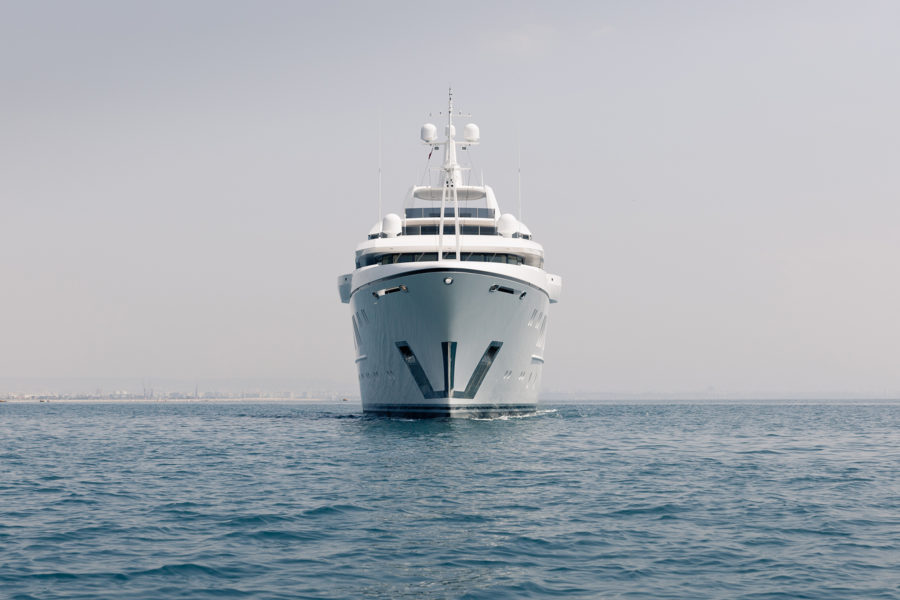
1. Have Realistic Expectations

- The superyacht industry is highly competitive and in order to qualify for employment a financial investment is required (training & travel)
- For applicants without relevant experience, being physically present at or near Superyachting hubs when searching for employment is important
- Obtaining the correct qualifications does not guarantee employment and training is not refunded
- Your passport and ability to obtain Visas have an impact on your employability
- Having contacts, experience, and the correct attitude is an advantage
- Working in the industry comes with some amazing benefits but like any career path, there are also disadvantages
- Being an extremely "hard worker" is not an advantage, it is expected
- The quality of work and attention to detail needs to be of a very high standard
- You need to be well-mannered, professional, and well-suited to living in close proximity to other crew
- Presentation matters
- Getting advice from multiple sources including crew who work in the industry is advised
- Different yachts, owners, crew, and itineraries = different experiences
2. Choose the Yacht Crew Department you Wish to Work in
Before joining the yachting industry, it is essential to decide on your career path. The work environment and duties associated with each superyacht department vary greatly. It is therefore advised that you understand the training, duties and requirements associated with each role. The most common roles for crew entering the industry are:

Steward / Stewardess
A superyacht stewardess is responsible for the guest service, housekeeping and laundry. In some cases, the position is combined with an additional role for those who come from a beauty or healthcare background.

Superyacht Deckhand
A deckhand is responsible for the cleanliness and upkeep of the yacht's exterior. Wash downs, line handling, tender driving, watersports and bridge lookout duties are common tasks for deck crew.

Superyacht Chef
Working as a superyacht chef comes with some unique challenges. Although the skills are certainly transferable, there is specific training and certification required. It can be a tough but extremely rewarding job.


Superyacht Engineer
Working on a yacht or superyacht as an engineer can be a rewarding career path. Although a background in engineering or mechanics is an advantage, it is not a prerequisite. The duties associated with the role are diverse, exciting and require a great deal of hard work.
3. Complete All Mandatory Superyacht Training Courses
Having the correct training and certifications is essential to your employability in the superyacht industry. In order to become a crew member, you will need to have completed the following training:
- STCW 2010 Basic training
- Proficiency in Designated Security Awareness or Proficiency in Designated Security Duties
- Department-specific training for your desired role. (I.e. stewardess, deckhand, engineer, chef, and officer courses)
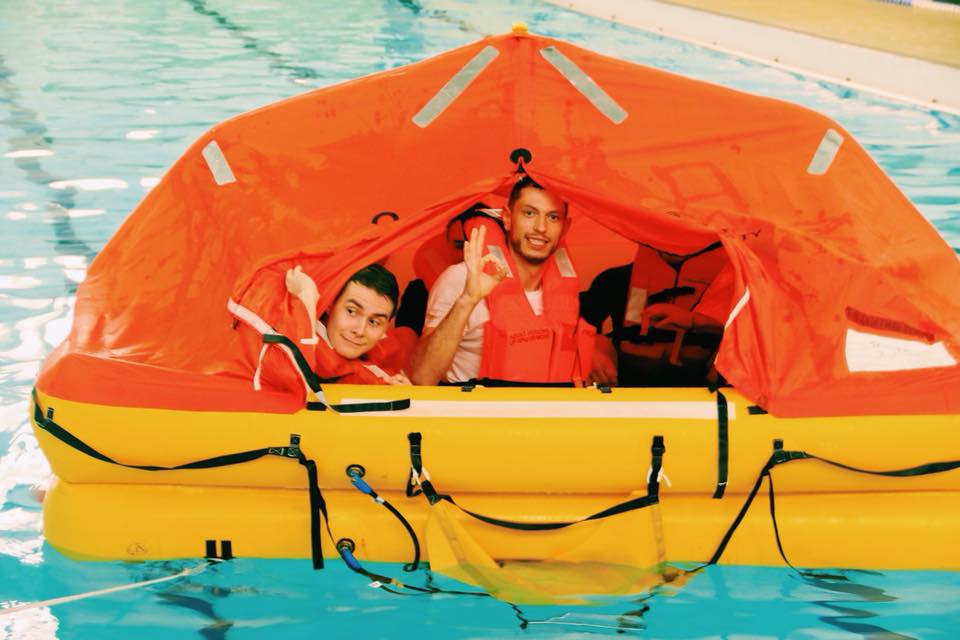
4. Obtain an ENG1 or ENG1 Equivalent Seafarer Medical Certificate

ENG1 Medical Certificate (or ENG1 Equivalent)
Superyacht work can be physically demanding. Ensuring that crew are physically well and able to work at sea is a crucial aspect of the crew and guest safety.
In order to work on a superyacht, you will have to hold an ENG1 Medical Certificate. Because the certification is set by the Maritime and Coastguard Agency (MCA), the examination must be performed by an MCA-approved doctor. The examination is done in order to identify any medical conditions that may prevent you from safely performing your work duties at sea.
5. Choose a Location to Join a Superyacht
When looking for your first job it is essential to be in the right place at the right time. There are a lot of factors to take into consideration when selecting your location, however the two most popular areas for working on a superyacht are:
6. Obtain the Correct Visas & Documentation for the Relevant Superyacht Hub
It is essential to obtain the correct visa for the country you plan to work in. It is important to understand the types of visas that exist as well as the local laws with regard to job seeking.

7. Create a Superyacht Crew CV
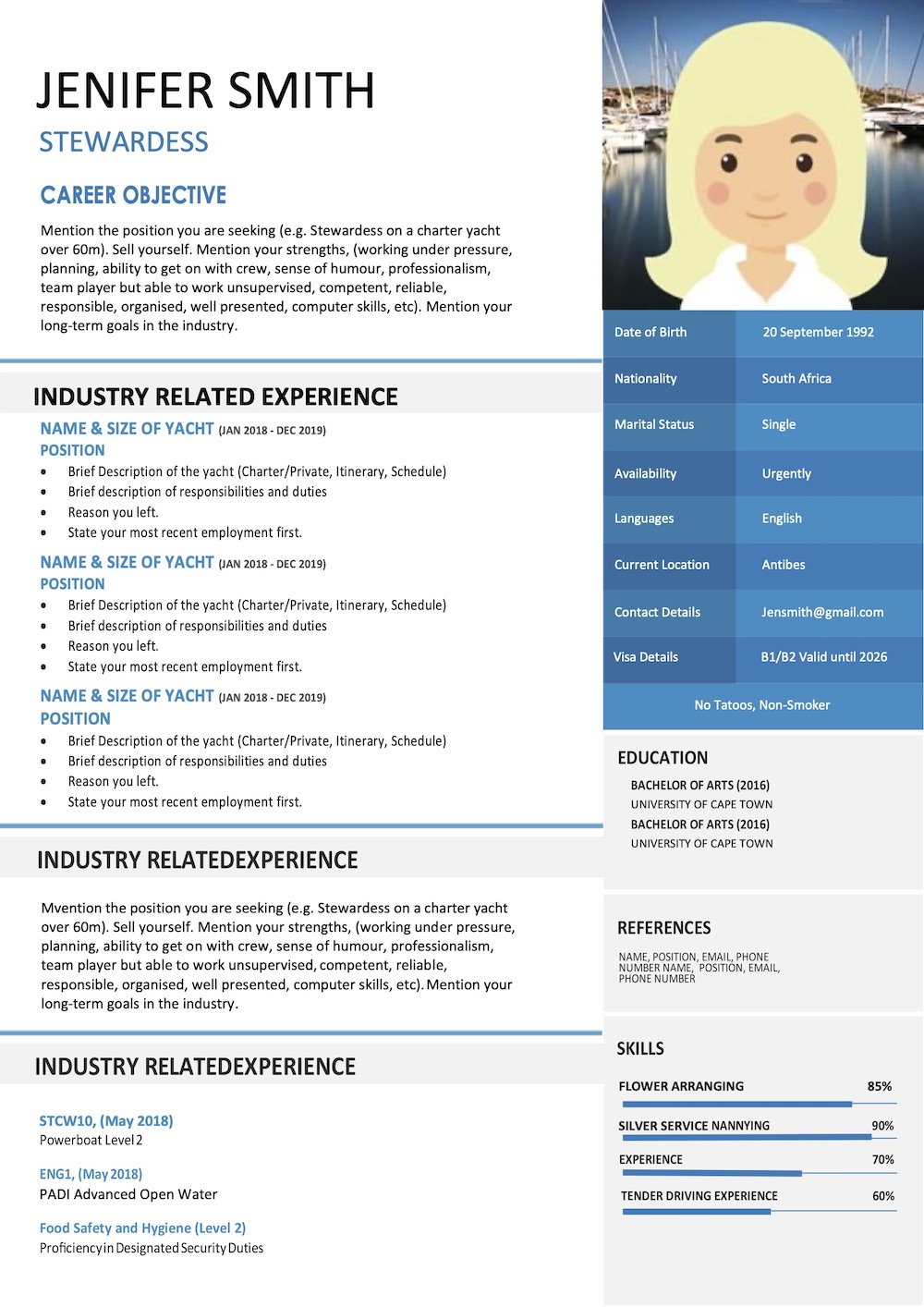
A professional and well-structured superyacht CV will help differentiate you from other job seekers looking to enter the industry.
Superyacht crew resumes have a different structure to normal CVs. If your CV is not laid out appropriately, your chances of being considered for a position are slim.
Examples and more information on how to create a great CV can be found on the links below.
8. Find Superyacht Job Vacancies
Finding the right job in the superyacht industry takes time and commitment. Using credible resources is key:
- The My Crew Kit Superyacht Job Board - Crew Agencies - Social Media Pages - Dockwalking - Networking

My Crew Kit Job Board:
My Crew Kit has the fastest-growing job board in the industry. Find the latest jobs posted by crew agents, captains and crew around the world!
View the latest vacancies
Crew Agencies
Crew Agencies play an intermediary role between yachts and crew. There are numerous agencies scattered around the main yachting hubs. Registering is a simple process and can be done online, many agencies will then request a short interview in person.
Find out more about Crew Agencies

Social Media Pages:
Online job boards and social media pages are extremely useful ways to apply for jobs as well as to find day work. It is important to only apply to jobs if you meet the criteria (have the correct experience and qualifications).
Be wary of which jobs you apply to. We recommend you only apply for jobs from closed social media groups with active moderators. Fake job posts do occur at times. Make sure you do not meet with or send personal information to suspicious accounts.
Find Appropriate Social Media Pages
Dockwalking:
Dockwalking is the process whereby you walk the docks with the aim of getting day work or even landing a permanent job. It is a gruelling task as there are often long distances between docks and it requires hours on foot. It also involves a lot of rejection as many boats are fully crewed and not looking for employees.
Find out more about dock walking.
Networking:
Your introduction to the world of yachting. The industry is growing exponentially; every year more boats are built, and more crew join the industry. It remains however, a close-knit community that feels a lot smaller than it is. ‘Everybody knows everybody’ and finding a job through a friend or a friend of a friend is often the best way to go. Crew like to work with people they get along with. They are therefore much more likely to hire someone from their extended network of friends than to look elsewhere (provided experience and qualification requirements are met).
A Few Suggestions:
- Network at every opportunity you get.
- Socialise with people you meet at training courses.
- Attend dock parties and BBQs.
- Socialise with the people in your crew house and visit other crew houses.
- Join yacht groups on social media.
- Hang out in the ‘yachty’ bars and restaurants.
- The more people you know in the industry the better off you will be.
Username or Email Address *
Remember me Lost your password?
Username or Email
Get New Password

Get Onboard
Superyacht Training

Do you Want to Work on a Yacht? The truth about Yacht Crew Life
We know a thing or two after having spent over 10 years living the luxury yacht life . It sounds glamorous, epic and like so much fun and totally not like a “real” job at all. I mean you get to travel the world and rub shoulders with the rich and sometimes even the famous. But pretty postcards, endless parties and bikinis it is not. It’s hard work crewing a luxury yacht. And it’s not for everyone.
Here’s the truth about yacht crew life.
It can be all the fun, sunshine, exploration and travel – but that is not the job. Yachting is an industry of extreme highs and extreme lows. Not all yachts are the same. You may strike it incredibly lucky and land yourself the utopian yacht, crew and billionaires who care. But in reality, you’re more likely to be living off Red Bull and doing 36 hour shifts, too tired to do anything but stare at the shore from your porthole window. No day aboard a yacht is the same. Workload and the type of work you’ll be doing changes depending on the season, whether you have guests on board, have any maintenance issues and also how new you are to the crew (rank & position too). A superyacht requires never ending upkeep. The yacht needs to be kept in immaculate condition, as do the crew, and the crew always need to be prepared for any situation.
Working on a superyacht is very hard work; you have to be at the beck and call of guests who have some quite particular requests that are almost impossible to fulfill. Whatever the guests require it is your job to make sure they get it. With a smile. The money is great though, but also varies based on position, qualifications, yacht size, where the yacht is located and if it’s private or charter. In general, a slightly higher salary is offered if the yacht is private with the hope that, if you work on a charter, you will make up your salary with tips. Once you have completed a particular charter you might just get a day or a night to explore the splendid ports of call with a nice big gratuity in your pocket. These kinds of opportunities are extraordinary and for that moment, any trials you may have encountered with the world’s wealthiest whilst facing unruly seas, unpredictable weather and even more unpredictable and unruly guests, diminishes.
All in all what happens to so many people in this industry may happen to you. Despite the challenges, you join for a season and fall in love with the lifestyle. Yacht life might not be for everyone, but if the bug bites you, it bites hard! Yachtie for life ! If you are thinking about getting into the yachting industry, download our eBook and find out all the insider tips of surviving , and preparing for yacht crew life.
Needing more?
Error: Contact form not found.
RYA/MCA Online
1. what are the basic requirements you need to be eligible to work in the yachting industry, 2. what is the stcw and why do i need it, 3. what is the eng1 medical certificate, 4. what land based experience will help me find a super yacht job, 5. what are the different departments onboard, 6. what crew training is required for me to work as a junior deckhand.
- Yachtmaster/Coastal Skipper Theory
- Yachtmaster/Coastal Practical
- Specialist Super Yacht Training Course (Deck Hand Training Course)
- RYA Power Boat Level II
- RYA Personal Watercraft Course
- RYA Competent Crew Certificate
- RYA Day Skipper Theory and Practical Certificates
- VHF Radio Operator’s License
7. What crew training is required for me to work as a junior stewardess?
- Stewardess Course
- Proficiency in Designated Security Duties (PDSD)
- MCA Food Safety Level 2
- RYA Powerboat Level 2
8. How do I book my training courses?
9. how do i get my first job on a yacht, 10. are these courses worth it, or am i just wasting my money, 11. will i get hired for my first job from south africa, 12. what is daywork, 13. what are the best locations to get a yacht job, 14. how much can a motor yacht stewardess or deckhand earn, 15. what are the negatives of working on a yacht, 16. what are the positives of working on a yacht, 17. is working on a super yacht for everyone, 18. what is the minimum age to work on a yacht, 19. is accommodation provided when i am completing my yacht training in cape town.

- Connect with Us
- Like us on Facebook
- Follow us on Twitter
Mega Yacht Crewing Jobs
CruiseJobFinder also specializes in helping people find great yacht crew jobs on privately owned sailboats and luxury yachts. This can range from a 50-foot sailboat sailing through the Mediterranean to a mega yacht, owned by one of the world's richest individuals, which is sailing all over the globe. These types of jobs are a great alternative to working on a cruise ship and offer a truly unique experience.
Working Aboard a Luxury Yacht: An Overview
Imagine your days full of work where you will meet people from all over the world, travel to exotic destinations, eat gourmet meals with a private chef and feel the breeze of the ocean air right in your office. Seems a little far fetched right?
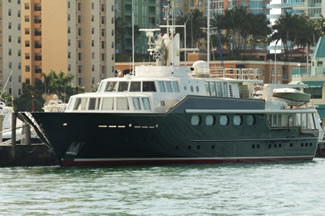
Charter yachts take guests on a single or multi-day trip for a fee. Some of these yachts may be commercially owned by a large corporation while others are owned by private individuals who commonly act as captain.
What about mega yachts such as those owned by Saudi princes and the billionaires of the world like Paul Allen, the Microsoft co-founder, and famous golfer Tiger Woods? Mega Yachts, luxury yachts and superyachts are all yachts that are 78 feet or more. These vessels can cost from one million U.S. dollars or more.
Finally, smaller yachts are much more affordable than they once were and more captains are buying their own yacht and pushing off anchor to explore the world on their own terms.
No matter the size of the vessel a crew is necessary.
Start your search for your Dream Job Today!
Unlike the busy cruise lines, working on private yachts offers an opportunity to work with a small amount of guests and co workers. The intimate setting paints a pretty picture enabling crew members to bond closely with their fellow crew members, employers and guests that make take passage upon the yacht they work for.
Yachting etiquette must be portrayed and a sense of adventure is a must!
Want to get a taste for the yacht crewing life? These pages preview some of what you'll learn more about in our Members Section:
- What it's like to live and work on a yacht
- Crew departments on yachts
- Types of positions on mega yachts
- Superyacht captain jobs
- Chef jobs on yachts
- Steward and stewardess jobs on yachts
- Yacht engineer jobs
- Yacht mate jobs
- ...and Lots More
Learn more about yacht crewing jobs in our Members Section .
The Inside Scoop On Crewing Positions
CruiseJobFinder gives you the information you need to learn the ropes. As a Member you'll have access to all kinds of great information, including:
- Overview - A step-by-step job search strategy and advice for using CruiseJobFinder.
- Yacht Jobs: A Day in the Life - Working on a private yacht can peacefully sweep you away into another mentality that you may have never known could exist outside of the 9-5 confines. Work on a private yacht can be long hours and busy but the work is different than a long busy day at the office. Do you wear a uniform? What are the sleeping arrangements like?
- Yacht Crewing Options - The three primary options are crewing for a captain, on a luxury yacht, or charter yacht.
- Yacht Job Descriptions - Nearly a dozen different jobs described, from Captain and Mate to Chef and Steward.
- Safety Guidance for Yacht Crew Job Seekers - To be certain there is far more dangerous work than that which can be found on a yacht. Nevertheless, we tell you some things to watch out for.
- Health and Hygiene at Sea - There's no room for a 'slob' on a luxury yacht, that's for sure. Learn what's expected in terms of etiquette, health, and hygiene. Plus, seasickness remedies and health insurance recommendations.
- Sea Skills and Training - Whether your ambition is to become captain or steward on a yacht, licensing in some area of nautical life is bound to be a part of your job plans. Find out what your options are.
- Yacht Crew Resume Tips - At some point you're going to find yourself face to face with someone who's hiring for a yacht job. What kinds of questions will they ask? What is s/he looking for on your resume? We've got some thoughts on this topic and share those thoughts in our yacht jobs resume tips section.
- Working on Yachts: Marketing Your Skills - It will be important to identify which type of yacht you wish to work for before developing your applicant presentation package. A charter boat company may seek people with completely different skillsets than the hiring manager for a 100-foot luxury yacht preparing for a round-the-world voyage. Learn how to properly market your skillset for the type of job your're seeking.
- Seasonal Sailing Locations Worldwide - If you are actively going to go out and look for work the best time to plant yourself in a yachting community is in the spring and fall. Utlilize our worldwide calendar and yachting locations table to target your job search.
Check out your potential worldwide sailing options right now!
Luxury yachts, charter yachts, and captain-owned yachts are all types of yachts that exist in this industry. Each one of them offers an amazingly different pace of life away from office life or for that matter any other sea work available.
- Search Thousands of Jobs
- Cruise Industry Career Tips and Proven Strategies to Get Hired!
- Create a Personal Profile
- Use our Advanced Job Search
- Accounting - Finance (233)
- Activities - Fitness (51)
- Administration - Clerical (54)
- Administration - Management (8)
- Advertising - Marketing - PR (121)
- Casino (13)
- Cruise Line - General (651)
- Culinary - Chef - Cook (1,118)
- Deck & Engine (8)
- Engineering (397)
- Entertainment (22)
- Food & Beverage - Restaurant (536)
- Front Desk - Concierge (1)
- Guest Services (147)
- Housekeeping (29)
- HR - Payroll - Training (115)
- IT - Internet (20)
- Landscaping - Grounds (6)
- Mechanic - Maintenance (341)
- Other (243)
- Procurement - Purchasing (28)
- Resort - General (274)
- Retail - Merchandising (24)
- Sales - Reservations (34)
- Salon - Spa (257)
- Security - Surveillance (81)
- Shore Excursion (2)
- Travel - Tourism (23)


Is Working On A Yacht Worth It? Here’s What You Should Know

Have you ever dreamed of working on a yacht, and sailing the world’s most beautiful seas? It may sound like a glamorous job, but is it really worth it? Working on a yacht is a unique experience, and it can be incredibly rewarding for those who are ready for the challenges and opportunities that come with the job.
In this article, we’ll explore what it takes to be a yacht crew member and discuss the benefits, qualifications, challenges, and risks that come with the job.
We’ll also dive into the cultural and financial rewards that come with working on a yacht.
So if you’re looking for a job that will take you around the world, read on to find out all you need to know about working on a yacht.
Table of Contents
Short Answer
Working on a yacht can be a great experience for many people.
It can provide a unique opportunity to travel, learn new skills, and meet people from all over the world.
However, it can also be hard work, with long hours and the possibility of seasickness.
Whether or not it is worth it depends on the individual and their goals.
What Are the Benefits of Working on a Yacht?
The benefits of working on a yacht are numerous and varied.
For starters, there is the chance to explore some of the worlds most beautiful locations, and to live and work in a unique environment, often surrounded by breathtaking scenery.
Working on a yacht can offer an escape from the daily grind, with flexible hours and the opportunity to meet new people and experience different cultures.
Additionally, there is the potential to earn a good salary, as many yacht jobs come with a generous pay package.
For those looking to explore the world while gaining valuable job experience, working on a yacht can provide an ideal opportunity.
Not only will you be able to travel to some of the most exotic and remote locations, but you will also be able to learn valuable skills such as navigation, maintenance, and hospitality.
Working on a yacht can also offer the chance to build a strong network of contacts, as you will be in contact with other crew members and travelers from all over the world.
Finally, the lifestyle associated with working on a yacht can be incredibly rewarding.
You will be able to meet interesting people, explore different cultures, and gain a unique insight into how the world works.
You will also be able to enjoy the simple pleasures of life, such as swimming, sunbathing, and spending time with friends and family.
What Sort of Qualifications or Experiences Are Needed to Work on a Yacht?

Working on a yacht is a unique and exciting experience, but it’s important to understand the qualifications and experiences needed to land one of these jobs.
Most positions require at least a minimum of boating experience, either through the military or through a recreational certification.
Those looking to work in the galley or as a steward may need culinary or hospitality training.
Those interested in engineering positions should have a degree in engineering or a related field.
There are also positions available for those with medical training, such as nurses and paramedics.
In addition to the necessary qualifications, having a valid passport and the ability to travel are essential for working on a yacht.
Most jobs require that you be able to leave at a moment’s notice and stay away for extended periods of time.
You should also be comfortable living in small spaces and working in close quarters with other crew members.
Communication, teamwork, and problem-solving skills are also important for a successful career on a yacht.
Finally, having the right attitude is an important factor in securing work on a yacht.
Employers are looking for crew members who are friendly and outgoing, as well as those who are willing to take initiative and take on responsibility.
They also want someone who is eager to learn and can adapt to the ever-changing environment of the sea.
Having a positive attitude and an open mind is essential for success in this field.
What Are the Challenges of Working on a Yacht?
Working on a yacht might sound like a glamorous opportunity, but there are some challenges as well.
From long hours to physical labor to living in confined spaces, there are some drawbacks that potential crew members need to consider.
One of the biggest challenges of working on a yacht is the long hours.
Many positions require crew members to work long shifts, with some jobs requiring up to 12-hour days.
In addition, crew members often have to be on call at all times, meaning their sleep can be disrupted if theres an emergency.
Physical labor is another challenge of working on a yacht.
From stocking shelves and cleaning cabins to running lines and fixing equipment, crew members often have to do a variety of manual labor tasks.
This can be difficult for some people, especially those who are not used to physical labor.
Living on a yacht can also be challenging.
Yachts are often cramped and uncomfortable, with limited space to move around.
This can be difficult for those used to having their own space.
In addition, crew members have to adjust to living in close quarters with others and may have to share a cabin or bunk.
Finally, being away from home can be a challenge.
Working on a yacht means being away from family and friends for long periods of time.
This can be difficult for some, as it can lead to feelings of loneliness and homesickness.
Ultimately, working on a yacht can be a rewarding experience, but its important to consider the challenges that come with it.
From long hours and physical labor to cramped living quarters and being away from home, there are some drawbacks that potential crew members need to be aware of.
What Are the Opportunities for Professional Development?

Working on a yacht can be a great opportunity for professional development.
Those who take on a job on board a yacht can expect to gain valuable skills and experience that they can use in their future career.
For instance, working on a yacht requires individuals to have excellent customer service skills, as they will be interacting with guests and crew members on a daily basis.
Additionally, those who work on a yacht can learn valuable navigation and navigation-related skills, as well as the ability to work with a wide variety of electronic and mechanical equipment.
Working on a yacht also requires individuals to be able to think on their feet and solve problems quickly, which is a valuable skill for any career.
Finally, working on a yacht provides individuals with the opportunity to develop their interpersonal skills, as they will be working in close proximity with other crew members.
Therefore, working on a yacht can provide individuals with the chance to hone their existing skills and learn new ones that can help them in their future career.
What Are the Potential Risks?
When considering working on a yacht, people should also be aware of the potential risks and costs associated with it.
While there can be great rewards, there can also be significant risks.
For example, the weather can be unpredictable and dangerous, and the boat may encounter mechanical problems or run aground.
The costs of maintenance, repairs, and supplies can be high, and there is a risk of job insecurity due to the nature of the industry.
Additionally, living aboard a yacht for extended periods can be uncomfortable and physically demanding.
People should weigh the potential risks carefully before deciding if working on a yacht is worth it for them.
What Are the Financial Benefits of Working on a Yacht?

When it comes to considering the financial benefits of working on a yacht, the first question that usually comes to mind is: How much money can I make? The answer to this question depends on the type of job you are looking for, as well as the size, age, and location of the yacht you are working on.
Generally speaking, working on a yacht can be a lucrative opportunity.
Many yacht crew members are paid a generous salary, along with other benefits such as food, lodging, and medical insurance.
Depending on the job, you may also receive bonuses and other perks such as travel allowances, clothing allowances, and even a share of the profits.
In addition to a salary, many yacht crew members also receive tips from the guests they serve.
Tips can range from a few hundred dollars to several thousand, depending on the type of trip and the size of the yacht.
Tips can add up quickly and can be a great way to supplement your income.
Finally, many yacht crew members are eligible for a variety of tax deductions, including costs associated with maintaining the boat.
This can include expenses such as fuel, repairs, and supplies.
By taking advantage of these deductions, you can significantly reduce your tax burden, making working on a yacht even more profitable.
Ultimately, the financial benefits of working on a yacht depend on the type of job you are looking for and the size, age, and location of the yacht you are working on.
With the right job and the right yacht, working on a yacht can be an incredibly rewarding and profitable experience.
What Are the Cultural Benefits of Working on a Yacht?
Working on a yacht can provide a unique cultural experience that is hard to find elsewhere.
People who work on yachts get to explore exotic locations, enjoy different cuisines, and immerse themselves in different cultures.
It is a great opportunity to learn about different cultures, meet new people, and broaden horizons.
The crew on a yacht is usually made up of people from all over the world, which allows for a rich cultural exchange.
People working on a yacht can learn about different cultures and share their own.
This exchange of cultures and knowledge can be a great way to expand one’s worldview and gain a greater appreciation for different lifestyles.
The lifestyle of working on a yacht is also attractive to many.
People who work on yachts often experience a more relaxed lifestyle than they would otherwise.
There is no need to rush to work in the morning, and people typically have more free time than they would in a more traditional job.
This allows them to explore more of the world and learn more about different cultures.
Working on a yacht is a unique experience, and it can provide a great opportunity to learn about different cultures.
Those looking to gain a greater appreciation for the world and learn more about different cultures should consider working on a yacht.
It can be a rewarding and exciting experience that is well worth it.
Final Thoughts
Overall, working on a yacht is a unique experience that offers many rewards and benefits, such as travel, flexibility, and the chance to meet new people.
That said, its important to weigh the risks and costs against the potential rewards, as well as understand the qualifications and experiences needed to find a job and stay safe.
If youre looking for a change of pace, a more flexible lifestyle, and the chance to explore the world, then working on a yacht could be a great opportunity for you.
Do your research, stay safe, and keep sailing!.
James Frami
At the age of 15, he and four other friends from his neighborhood constructed their first boat. He has been sailing for almost 30 years and has a wealth of knowledge that he wants to share with others.
Recent Posts
When Was Banana Boat Song Released? (HISTORICAL INSIGHTS)
The "Banana Boat Song" was released in 1956 by Harry Belafonte. This calypso-style song, also known as "Day-O," became a huge hit and remains popular to this day for its catchy tune and upbeat...
How to Make Banana Boat Smoothie King? (DELICIOUS RECIPE REVEALED)
To make a Banana Boat Smoothie King smoothie at home, start by gathering the ingredients: a ripe banana, peanut butter, chocolate protein powder, almond milk, and ice. Blend the banana, a scoop of...
Find Your Perfect Yacht Crew & Marine Job on WorkOnYacht.com

Chef Position

Electro-Mechanical Tech I
Mate/engineer, temporary deckhand, chief /lead stew, chief stewardess.

Boat Manager
Female stew or deck/stew.

Powersports Technician
Experienced deck/stew.
Ready to take the next step in your career? Don't wait, opportunities are waiting for you.
Why Post Jobs With Us?
- Targeted Promotion: We consistently promote our platform on top resources like Google Search, Facebook, and Instagram, ensuring your job postings reach the right audience.
- Automated Job Posting: As soon as you post a job on our platform, it is automatically shared on Facebook and Twitter, ensuring immediate and wide-reaching visibility.
- Dashboard Management: Manage all your job postings easily from one place with our user-friendly dashboard.
- Email Subscribers: Our growing list of subscribers receive daily email notifications about new jobs, increasing the visibility of your postings.
- Google Jobs Integration: Jobs posted on our platform are automatically distributed to Google Jobs, expanding their reach.
- Security and Support: Our platform is secure and provides customer support.
- Efficiency: We are straight to the point. Our platform is a real tool designed to connect employers with the right candidates efficiently and effectively.
Why Engage With Us?
- Extensive Job Opportunities: Discover a comprehensive array of positions within the marine and yachting industry, ranging from dockhands to captains, mechanics, and forklift operators.
- Visibility Through Detailed Profiles: Create a detailed profile that will be visible on our platform, allowing companies and yacht owners to find and hire you directly.
- Regular Updates: Stay informed with consistent updates, including new job postings and insightful blog articles.
- User-Friendly Interface: Navigate our platform with ease, guided by our detailed step-by-step instructions.
- Access to a Wealth of Opportunities: Gain access to a broad spectrum of job opportunities within the yachting industry.
- Stay Informed: Subscribe to our platform and receive the latest job updates directly to your inbox.
- Join a Professional Community: Become a part of our dedicated community, focused entirely on the yachting industry.
Are You Hiring?
Hire The Best Marine Professionals on WorkOnYacht.com
Session Expired

How To Become A Yachtie | How To Land Your First Yacht Job
How would you like to travel the world with no expenses while getting paid to do so?
Sounds too good to be true, but it’s not!
Working on superyachts, that is exactly what happens. You get paid a great wage all while traveling the world with no expenses.
Most readers have already heard about working for a cruise line, however, not many people know they can skip the crowded cruise ships and work on a Superyacht for the rich and famous.
If you have seen or heard of “ Below Deck ” then you already know all about the yachting industry.
With the popularity of this TV drama series, more and more people are trying to get into the industry.
But with more people applying for jobs each year, it is getting harder and harder to break into the industry. This is why I decided to write this, to help people like you on how to become a yachtie.
How To Get Into Yachting
Before you start your career in yachting, you’ll need to get your STCW 95 and your ENG 1. YOU CANNOT WORK ON A YACHT WITHOUT THESE.
The STCW 95 is a one-week basic training course that costs around $1000-$1500 depending on where you take it. To find a location near you go to the STCW 95 course .
This course covers basic firefighting training, first aid, and sea survival. You will be in charge of a multi-million dollar, even billion-dollar yacht.
They want to make sure you are wise and capable of taking care of it.
You will also need to get your ENG 1 before you can begin working on a yacht. It is a simple health exam to ensure you are physically fit and is entirely for safety reasons.
You can’t be out at sea and have health issues that might require emergency evacuation.
It is normally a good idea to get your ENG 1 while you are taking your STCW 95 course. There are only a handful of doctors that are permitted to assign you an exam.
They all tend to work from where the yachts are based and the exam will be in high demand.
The ENG 1 is usually around $100 – $150, and it only takes about 15 minutes, but it is REQUIRED.
For anyone interested in working for the deck department, it is a disadvantage if you are color blind.
If you are only wanting to go yachting for a year or two, this won’t be a problem. But, if you want to make this a career and work your way up to captain then you will not be able to do so.
You will be in the wheelhouse at night and doing watches so you’ll need to know the difference between red and green lights.
Not sure what you want to do on a yacht? Click here for the best entry-level jobs .
Also, be aware that yachting is a very old-school industry, and having visible tattoos might hurt your chances of getting a job. Although this is becoming less and less of an issue.
11 Tips On How To Become A Yachtie

1. Make a Kick-Ass CV
With more and more people joining the yachting industry, you have to make yourself stand out for an entry-level position.
A standard CV in the yachting industry includes a professional photo of yourself (Be sure to wear a white polo shirt ), nationality, date of birth, smoker/nonsmoker, tattoos, and previous work experience.
Also include hobbies, places you’ve lived, accomplishments, and what you do for fun.
You never know what will get you hired, it could be that time you climbed Kilimanjaro! If the first mate that is hiring has also done this, he will most likely put you in front of the line and call you first.
If you pass the phone interview and get along well with the crew, you will most likely get the job.
Canva is also a great place to go to get a great CV template to make yourself stand out
2. Dockwalk
Dock walking is like cold calling but in person. You have to get used to rejection in yachting, you might not be the right fit for one yacht but you will be the perfect fit for another.
DON’T take rejection personally and DON’T give up.
One of the best ways to get a job in yachting is by dock walking, talking to the crew, and asking if they have any day work.
After your day work, you never know what might turn into a full-time job. Yachting is all about networking.
For a full guide on dockwalking
3. Yachting Facebook Groups
Facebook is great these days for their group forums. Jobs are constantly being posted in Facebook groups so join as many as possible.
They are also great for keeping up-to-date with topics that are going on in the industry.
Joining one of these groups is a great way to find out information on How to become a yachtie or how to land your dream job.
Be sure to focus on groups for the area you are based in. If you are in Fort Lauderdale, it doesn’t make sense to join a crew Facebook group based in Antibes, boats want local crew.
If you are new to the industry, no one is going to fly you out to the boat.
Be aware of what you post in these groups, greenies are constantly ridiculed for foolish posts and stupid questions.
But if you are clever enough to post a creative or funny posting looking for work, it might even land you a job : )
Here are some great Facebook groups to get you started
- Yacht Crew Wanted
- Med Yacht Crew Jobs
- Yacht Chef Jobs

4. Daywork123
This is a great website for crew seeking work in South Florida, they are constantly posting jobs and day work. You can upload your CV and apply for jobs that are posted here.
If you post your CV on this website be awake and ready to work by 8am. You can get a phone call at any time and they likely want you to start work right away.
They say the early bird catches the worm, in yachting, it’s all about who can show up ready to work first.
However, I only recommend this website if you are legal to work in the US.
Immigration has been known to look for illegal workers here, and sometimes even set up traps. The last thing you want to happen is to get caught looking for work before your career even starts.
5. Drop Off Your CV At Local Yachting Spots
If you want to get a job on a Superyacht, it is best to go where the superyachts are based: South Florida, Antibes or even Palma.
Like I said before if you don’t have the experience, no one is going to fly you to the boat.
Wherever yachts are based, there are local yachting bars or uniform shops that are great for green crew to leave their CV’s behind.
Boat crews go there often when they are looking to hire.
If you are in Fort Lauderdale you can drop your CV off at Smallwoods, a crew uniform shop. If you are in Antibes then you can post them in the Blue Lady, a local yachting bar.
Put a copy of your CV or business card in these types of places.
Be sure to keep an eye on it, go in and move it to the front of the line if you are still looking for work.
It’s all about being at the front of the line if you want to get a job.
6. NETWORK with Superyacht Crew

I can’t tell you how important this one is, network, network, network…. You need to be social and likable to make it in yachting.
Not only are you going to be working with the same people every day, but you also live with them. They become your family away from family and you have to see them and get along 24/7.
If you are a person who likes your personal space, yachting is most likely not for you.
You might be traveling the world with the same 7 people for the next 2 years, you need to get along.
So network, and talk to everyone you meet or pass by because you never know where your first job will come from.
It could be as simple as talking to someone in line at the grocery store.
Or letting someone cut in front of you at a crowded bar that helps land you your first job.
7. APPLY, APPLY, APPLY
You are not going to get a job on a Superyacht unless you keep applying and sending out your CV. On average you should be sending your CV out at least 20 times a day.
Most likely you might only hear back from one or two of the boats, sometimes none.
But you can’t give up. You might not be the right fit for 100 yachts, but you will be the perfect match for one.
You just have to keep on applying until you land your first job.
Because you are technically not a yachtie until you get your first job.
8. Triton/ Social Superyacht Events
This comes back to networking. You have to get involved in the yachting community and go to local events in your area if you ever want to get a job.
Triton holds some great events frequently, so it’s a good idea to check them out and see what’s going on in your area.
Networking is key if you ever want to get a job. Talk to captains, add people on Facebook and most importantly be friendly and social. No one wants to hire an unfriendly crew member that isn’t social.
9. Airdrop Your CV or Business Cards
Ok, I had never made b usiness cards, but they are truly effective. Nothing is worse than being caught without your CV when someone is looking to hire and you are the perfect fit.
Always have business cards in your pocket, they are much easier to hand out than your CV.
Another tip is to have your CV on your phone ready to Airdrop or email. Yachting is a fast industry.
When a boat needs a crew member to start, it was most likely yesterday. The person who can start the fastest is usually the one they will hire.
There are hundreds if not thousands of crew members looking to join the industry and everyone is replaceable.
10. Yachting Crew Houses
Stay in a crew house when looking for work, this will give you a great opportunity to network.
Think of a hostel except everyone staying there is in the industry, in-between jobs and usually looking for work. I was able to score my first job from a crew house.
A girl in my crew house was fired from a boat because she was unable to cook.
Since I was cooking she recommended me and voila! That is how I got my first permanent job.
Check out Facebook to find a crew house in your area. If you are in Fort Lauderdale I highly recommend Ancorhed Crew House .
If you keep doing all of the above until you land your first permanent job, I promise you will get a job on a superyacht.
Keep trying and don’t give up. I promise you will get a job if you follow these steps.
It is a dream job for some. A job that lets you travel the world making money while having no expenses.
All of your expenses on the yacht are paid for! Including your shampoo and deodorant.
You will also have all of your meals cooked for you by an amazing chef, and your laundry washed, ironed and folded.
It is the perfect job for anyone looking for an alternative lifestyle, to save a ton of money, and travel.
Downsides Of Working On Yachts
Once you are a yachtie, you will realize that is does have its downsides.
You have no personal space or private life, you are at the beck and call of the owner 24/7 year-round.
So you can throw out planning for anything or going home for family events.
It is unstable. Depending on the yacht, you can be let go from a position for any reason.
You will also have to be off the boat within hours ( luckily they do have to pay for your ticket home).
Also, it is a very sexist industry.
If you can’t handle that, don’t join the industry.
Besides modeling, it is the only industry that not only allows but requires you to put a picture on your CV.
There are stories of girls getting fired because of their hair color, they were too short, or the owner’s wife thought they were too pretty.
You have very different working rights than you are used to. Forget about overtime. You will be working long hours, holidays and weekends.
If you don’t like it they will simply find someone who does. At times you will work 18 hours or more a day, sleep very little, and you won’t step foot on land for weeks.
However, without expenses, you should be able to save a lot of money. When you are working all the long hours you can’t spend your paychecks.
But when you do have to time off you are able to do some awesome things.
You will meet some amazing people. Collect stories that your friends back home will never believe.
It’s not for everyone, but if you can deal with the downsides of it, it is completely worth it.
Thanks for reading. I hope you enjoyed this article on “How to become a yachtie”
So are you ready to get a job on a Superyacht or are you looking for other cool jobs to do aboard ?
What Qualifications Do I Need To Work On A Superyacht?
You only need two qualifications to work on a Superyacht. The first is your STCW 95 a one-week training course and the other is your ENG 1 a psychical medical exam. These are the basic qualifications for entry, but there are more courses you can do to better your odds of getting a job.
Is It Easy To Get A Job On a Superyacht?
Yes! It is easy to get a job on a superyacht, it just takes a little determination. Females tend to have better luck starting out than males, but as long as you don’t give up you will land yourself a job on a superyacht.
How Much Do You Make Working On A Superyacht?
You normally make around $3,000 – $3,500 as an entry-level yacht employee. This does not include your free room and board, as well as all your toiletries and uniforms that are paid for. Salaries will go up every year that you continue to work in the industry.
Related Content
- What Questions to Ask Before Joining a Yacht
- How to Become a Yacht Stewardess
- How to Become a Yacht Chef
Related Posts

Guide To Dock Walking

Yacht Chef, How To Become One!

Best Questions To Ask Before Joining A Yacht
18 thoughts on “how to become a yachtie | how to land your first yacht job”.
Thank you for posting
I would like to know more about the course prices and if you may have accommodation for learners
It all depends on where you take the course, as it is offered all around the world. However, it is normally around $1000. You can also normally find a room to rent near where the course is being held for around $200 a week.
Very good blog
I would love to work in a superyacht
What do you do if 1. you are not a US citizen (for jobs in Fort Lauderdale). 2. if you don’t live in Fort Lauderdale or near a dock?
You don’t have to be US citizens, if you are able to work in Europe you can also try Antibes.
Hie Peter is there any age limit
Nope, no age limit although the average age is 20’s-30’s.
Can older people work. There age 61
Generally, it is a pretty young industry. Especially when you are starting out and have no experience. I think they would really struggle to find work, especially if they are just getting started.
Please I would love a job please
Do the steps I write about in this post and you will get one : )
good day, can I apply as a crew?
First, you need to get your STCW, and after that you can apply.
Hi my name is sasha from south africa 19years old of age looking for job with no experience
You should totally get your STCW 95 and apply to work on the yachts.
Leave a Comment Cancel Reply
Your email address will not be published. Required fields are marked *
Save my name, email, and website in this browser for the next time I comment.
Watch CBS News
Crews work to transform Harriet Island for Minnesota Yacht Club Festival
By Ubah Ali
July 17, 2024 / 10:53 PM CDT / CBS Minnesota
ST. PAUL, Minn. — From major floods to a major festival — work is underway to transform St. Paul's Harriet Island into an oasis for festivalgoers.
Around Harriet Island, you may hear heavy machinery now, but on Friday it'll be artists like Gwen Stefani, Alanis Morissette and Red Hot Chili Peppers rocking the stage .
"It's surreal, I sent a pic to the mayor (Melvin Carter) and I can't believe that (stage) is in our park right now," said St. Paul Parks and Recreation Director Andy Rodriguez.
Rodriguez's shock is justified given Harriet Island was flooded after weeks of torrential rain.
The Mississippi River spilled onto the island, swallowing the playground and forcing 11 events to be canceled.
Rodriguez said there was concern for a moment and city leaders and festival organizers did meet to explore other options.
But a stretch of warm days and clear skies arrived just in time.
"We are in really good shape heading into the weekend," he smiled.
Despite water receding, it took a lot to get the island ready for 60,000 people.
"We've probably had 30 plus people down here every day consecutively for about a week and a half, two weeks, getting site prepared," said Rodriguez.
Rodriguez says crews put in countless hours removing silt, checking electrical wiring and making sure park structures were still in good shape.
"We've done everything we need to do in terms of testing, compliance, and inspection and we are ready to go," he said.
Wednesday evening C3 music festival crews were hard at work before Friday's opening act.
Rodriguez says he's excited for one of the biggest festivals to take place.
"Not only great for this park but downtown St. Paul, city as a whole, businesses, hotels it's bring back activation down to the space," he said.
For more information on the Minnesota Yacht Club Festival, click here .
Featured Local Savings
More from cbs news.

Minneapolis out of the running to host Sundance Film Festival

Stanley Cup's appearance in Twin Cities postponed due to global tech outage

From DNR to DMV, online outages ravage Minnesota government systems

MSP Airport flights, Metro Transit and some government agencies affected by global Microsoft outage

An official website of the United States government
Here’s how you know
Official websites use .gov A .gov website belongs to an official government organization in the United States.
Secure .gov websites use HTTPS A lock ( Lock A locked padlock ) or https:// means you’ve safely connected to the .gov website. Share sensitive information only on official, secure websites.
JavaScript appears to be disabled on this computer. Please click here to see any active alerts .
Public Notice: Marine Professionals Northeast, Inc. d/b/a Scituate Boat Works, CWA-01-2024-0044
Contact: Wanda I. Santiago Regional Hearing Clerk U.S. EPA, Region 1 5 Post Office Square - Suite 100 Mail Code: 4-MO Boston, Massachusetts 02109-3912 (617) 918-1113 [email protected]
Failure to obtain authorization under the Multi-Sector General Permit for Stormwater Discharges Associated with Industrial Activities (MSGP), or any National Pollutant Discharge Elimination System (NPDES) permit for stormwater discharges into waters of the United States.
Name and Address of Facility or Site Addressed by Agreement: Marine Professionals Northeast, Inc. d/b/a Scituate Boat Works 119 Edward Foster Road Scituate, MA 02066
Comment Period: 07/19/2024 to 08/19/2024
Program/Statute: Clean Water Act (CWA)
Proposed Settlement Penalty: $5,000
Docket Number: CWA-01-2024-0044
Applicants or Respondents
119 Edward Foster Road Scituate , MA 02066 United States
Related Documents
- Marine Professionals Northeast, Inc. d/b/a Scituate Boat Works, Scituate, MA Public Notice (pdf) (148.8 KB) Notice of Proposed Assessment of Class I Clean Water Act Section 309(g)(2)(A) Administrative Penalties and Opportunity to Comment
- Share full article
Advertisement
How to Charter a Boat
If you want to sail off into the sunset, at least temporarily, you need to understand how to get aboard first.

By Lauren Sloss
This time of year, it’s an inevitable thought: Life would be that much better out on the water. Specifically, on a boat.
Even if you have neither a boat nor boating experience, it’s never been easier to make your nautical dreams come true — whether you want a day trip on your local lake or a fully staffed multiday voyage in a far-flung locale. Here are the initial questions that will help you plan an adventure on the water.
Whom are you traveling with?
Thinking about the size and dynamic of your group is an important first step, even if you are simply going on a day trip. Will children be on board? How old? What about elderly parents?
Dan Lockyer, the chief commercial officer of Dream Yacht Worldwide , strongly encourages travelers to determine group size — and, ideally, get people committed — before booking.
“The location that you want to go to, the time of year that you want to go, the type of boat that you want will entirely depend on the makeup of the group that you’re sailing with,” Mr. Lockyer said.
Do you want to captain, or do you want a captain?
Different charter companies specialize in certain locations, types of boats, itineraries and services. Some companies offer the opportunity for a “bareboat” charter, in which you rent the boat and take on the navigation and provisioning yourself, while others exclusively offer fully staffed options, including a captain and a cook.
If you want to captain the boat yourself, almost all outfits require some kind of proof of sailing or boating experience, often in line with local regulations.
Edward King, 45, an executive at a streaming company based in San Francisco, is experienced in sailing the city’s waterways. But on vacation, he said he would prefer to let a captain and crew take the lead.
Mr. King said he appreciates a captain who is familiar with both the local waters — “they’ll know how to avoid sailing into a certain sandbar,” he said, — as well as the local attractions.
In contrast, Matt Blake, 38, a software engineer based in Oakland, Calif., was eager to grow his sailing experience during a recent trip to La Paz, Mexico, with his fiancée. He hired a captain but made clear that the captain was there to help and teach.
Where do you want to go?
“Do you want something that’s more culturally oriented? Nature oriented? An adventure trip?” asked Mary Curry, the voyage product director of Adventure Life , which offers small group tours and private trips on land and on water around the world.
That answer can determine your destination. Popular cruising grounds include the Caribbean, Croatia, Alaska and French Polynesia, but the sky — or the sea — is really the limit. For help narrowing your focus, travel advisers often have relationships with charter companies or outfits around the world, and sailing publications offer recommendations.
Kyla Malkani, who has had experience with charters working as a destination wedding planner, recommends consulting the concierge of waterfront hotels, particularly for short-term or day rentals.
“A lot of times they will have either their own fleet or they will have some sort of connection at a dock,” said Ms. Malkani, 37, who is based in Washington, D.C., and is currently working as a content creator and freelance event planner.
What kind of boat?
Where you want to travel and for how long will likely determine the kinds of boats that are available to you. Crucial at this point, too, is an understanding of the boat’s layout and amenities.
“You definitely want to choose the right kind of boat,” said Ms. Malkani. “If you want more adventure, a sailboat is nice. If you’re looking for a luxury party environment, a yacht is best. And if you’re looking for something smooth, for older people or with kids, a catamaran is great.”
David Barclay is a luxury travel adviser who has also chartered boats for his own vacations.
“You want to match what the travelers want to what the boat offers,” he said.
Perhaps a group of friends might not mind a catamaran with functional but not luxurious marine bathrooms, but a multigenerational group might prefer more high-touch amenities.
When should I book?
Often, charter trips are once-in-a-lifetime experiences that require a great deal of advanced planning.
“You may have a specific place you want to go, or a specific time of year you want to travel,” said Mr. Barclay. “And some places just aren’t good at certain times of year.”
Naturally, you don’t want to be at sea in the Caribbean during hurricane season, or in the Mediterranean during winter storms. But you also might want to avoid peak cruising seasons, too.
The first three weeks of August are quite popular, said Mr. Lockyer. “If you have some flexibility and can travel in early July, you’ll get the same sort of great weather, a greater selection of boats and the anchorages won’t be as crowded.”
How much does it cost?
Charter costs are incredibly variable, dependent on all of the factors coming into play: your boat type and size, your destination, your group size, the amount of crew you’d like and the amenities on board. That said, costs could range anywhere from $2,000 for a day on a sailboat to hundreds of thousands of dollars for a multiday mega-yacht charter. Have a budget in mind when beginning your research process.
What if I didn’t plan far in advance?
While advanced planning is encouraged, and often necessary for bigger boat trips, it’s possible to book a boat last-minute.
Boatsetter , an Airbnb-like platform for boats, is a good resource for last-minute bookings, especially for day trips, and even has an Instant Book option for down-to-the-wire bookings.
“If it’s for a special event, or around major holidays, you may want to book a month or two in advance. But for general bookings, you can find options within a week or two,” said Kim Koditek, Boatsetter’s head of brand strategy and communications, of the company’s overnight offerings, which appear on their platform under the luxury yacht charters category .
Ms. Malkani has used Boatsetter for some of her charters, most of which have been booked with a specific goal in mind.
“I’m a sunset chaser,” she said. “My husband and I just really love being on the water, and we always try to squeeze in some sort of boat day activity when we’re traveling.”
For more travel advice, visit our collection of Travel 101 tips and hacks.
Come Sail Away
Love them or hate them, cruises can provide a unique perspective on travel..
Cruise Ship Surprises: Here are five unexpected features on ships , some of which you hopefully won’t discover on your own.
Icon of the Seas: Our reporter joined thousands of passengers on the inaugural sailing of Royal Caribbean’s Icon of the Seas . The most surprising thing she found? Some actual peace and quiet .
Th ree-Year Cruise, Unraveled: The Life at Sea cruise was supposed to be the ultimate bucket-list experience : 382 port calls over 1,095 days. Here’s why those who signed up are seeking fraud charges instead.
TikTok’s Favorite New ‘Reality Show’: People on social media have turned the unwitting passengers of a nine-month world cruise into “cast members” overnight.
Dipping Their Toes: Younger generations of travelers are venturing onto ships for the first time . Many are saving money.
Cult Cruisers: These devoted cruise fanatics, most of them retirees, have one main goal: to almost never touch dry land .

IMAGES
VIDEO
COMMENTS
Deck Engineer - 130m+ Private Motor Yacht. Maldives or Seychelles (Summer) / Med (Winter) Rotation 8:8 (Weeks) Qualifications: Y2 or Y3. Experience: 3 Years +. Salary: 5000EUR (DOE) Apply. Next →. The latest yacht crew jobs available onboard exclusive charter yachts and luxury private yachts with leading yacht crew recruitment company, Bluewater.
Browse Yacht Jobs. Our crew database includes 5,133 Captains, 10,037 Deckhands, 2,947 Chief Engineers, 1,313 ETOs, 5,570 Chefs, 15,180 Stews, 1,469 Massage Therapists, etc. Here are some of the recently registered yacht crew members: Hundreds of live jobs on yachts and superyachts. Jobs for yacht crew in the Mediterranean, Caribbean, USA and ...
Inexperienced yacht crew working as deckhands or stewardesses can earn between $2000-3000 a month. With more experience and higher positions, your salary can be between $3500-$6000 a month. On charter trips, guests typically tip 5% - 15% of the weekly charter fee, which is split between crew members.
The Second and Third Engineers report directly to the Chief Engineer. They assist in maintaining all mechanical and electrical operations of the yacht. 2nd Engineer. €3,000 - €10,000. 3rd Engineer. €2,500 - €6,500. Sole Engineer. €3,500 - €12,000. Motorman.
Welcome to the TCN Family. At any one time our recruiting teams are handling over 100 full-time, part-time and seasonal vacancies for yachts from 24m (79') to over 200m (650') around the world - many advertised exclusively with The Crew Network (TCN). Some of these maritime jobs may be perfect for you. Applying for yacht jobs through TCN ...
Make sure you are dock walking, looking for day work opportunities and handing out your CV. You may find that one day's work leads to a permanent role or other job interviews. Educate yourself on the industry. Read websites, follow yachting news, learn from other crew who were in your 'deck shoes' a few years ago.
The tips depend on the size of the Yacht and the guests, but a good estimate is 10 - 20% of the total weekly price of a Yacht. If you imagine a 50m (165 foot) Yacht with 9 crew, it typically charters for $150,000 - $250,000 per week. For simplicity, let's add a 15% tip for $200,000/wk.
Go to a superyacht marina. 1. Have the right attitude. Along with gaining the correct qualifications to prove your competence, to become a Yachtie, you must have certain characteristics to thrive in this industry. Yachties have to be well presented, articulate, know how to take orders, and be able to work hard, all with a smile and enthusiasm.
About the Yacht Positions. The diversity and opportunities to work aboard superyachts around the world are endless. The yachts range in size from 60ft to 600ft with crew of 1 - 100 crew members in four primary departments. Each department is responsible for a unique set of tasks aboard and is suited for individuals with specific skillsets and ...
Working On Yachts. We nurture and guide crew members through their careers from deckhands to captains, laundry workers to chief stewardesses, then in turn, provide them with their junior crew. View Now. Learn more and sign up to our newsletter. Registering with us gives you more opportunities than any other crew agency of finding a job on the ...
Yacht crew share both their work and living space with each other and together they aim to deliver the best holiday experience to yacht owners and their guests. The deck and engineering crew need to obtain various certifications for safe manning of the vessel and the interior team will be trained and ready to deliver service on the highest ...
Mate/Engineer. Yacht Jobs Network • Full-time • Fort Lauderdale, Florida 33315, United States. Yacht Crew mate engineer. 17h ago.
Get a Job on a Yacht. Working on a sailboat or super yacht can be an exciting job. It is a great way to see more of the world. The yacht crewing section of this web site is the largest section. You can find dozens of links to crew lists, crew agencies, charter companies to work for, and general crewing information.
Working hours for yacht crew members can vary depending on the yacht's schedule and guest requirements. Crew members may work long hours, often 12-16 hours per day, during busy charter seasons. However, there may also be periods of downtime between charters. Living conditions on a yacht can be tight, with shared cabins and limited personal space.
To work on a yacht you should have these qualifications. You should also consider additional training such as silver service, housekeeping and yacht management. Yacht work is both seasonal and all year round depending on the yacht you work on. Travel is a huge part of the role! Good luck with your training and career progression and if we can ...
Much of a deckhand's work is performed on the outside of the boat. Therefore, as a deckhand, you would be doing a lot of manual labor outside. This can be helpful to keep in mind when deciding if working as a deckhand is right for you. Deckhands usually make between $27,000 and $55,000 per year. 3.
2. Choose the Yacht Crew Department you Wish to Work in. Before joining the yachting industry, it is essential to decide on your career path. The work environment and duties associated with each superyacht department vary greatly. It is therefore advised that you understand the training, duties and requirements associated with each role.
A superyacht requires never ending upkeep. The yacht needs to be kept in immaculate condition, as do the crew, and the crew always need to be prepared for any situation. Working on a superyacht is very hard work; you have to be at the beck and call of guests who have some quite particular requests that are almost impossible to fulfill.
The money you make will also depend on the owner of the yacht and where they are based in the world, the itinerary of the yacht, and whether it's private or charter. On average, this is what you can expect to earn monthly doing various yacht crew jobs: Deckhand Jobs: $2700. Steward: $3000. Chef: $4000.
Working on Yachts: Marketing Your Skills - It will be important to identify which type of yacht you wish to work for before developing your applicant presentation package. A charter boat company may seek people with completely different skillsets than the hiring manager for a 100-foot luxury yacht preparing for a round-the-world voyage.
Finally, the lifestyle associated with working on a yacht can be incredibly rewarding. You will be able to meet interesting people, explore different cultures, and gain a unique insight into how the world works. You will also be able to enjoy the simple pleasures of life, such as swimming, sunbathing, and spending time with friends and family.
Experienced Deck/Stew. Yacht Jobs Network • Full-time • Fort Lauderdale, Florida 33315, United States. Yacht Crew deck Deck stew. 2d ago.
How To Get Into Yachting. Before you start your career in yachting, you'll need to get your STCW 95 and your ENG 1. YOU CANNOT WORK ON A YACHT WITHOUT THESE. The STCW 95 is a one-week basic training course that costs around $1000-$1500 depending on where you take it. To find a location near you go to the STCW 95 course.
St. Paul's Harriet Island transforming ahead of Yacht Club Festival 02:04. ST. PAUL, Minn. — From major floods to a major festival — work is underway to transform St. Paul's Harriet Island ...
Hanif's work also echoes the great tradition of nautical painting, which also stretches back to ancient times and includes works by artists like Winslow Homer, Fitz Hugh Lane, and J.M.W. Turner.
Notice of Proposed Assessment of Class I Clean Water Act Section 309(g)(2)(A) Administrative Penalties and Opportunity to Comment for Marine Professionals Northeast, Inc. d/b/a Scituate Boat Works, Scituate, MA, CWA-01-2024-0044.
This time of year, it's an inevitable thought: Life would be that much better out on the water. Specifically, on a boat. Even if you have neither a boat nor boating experience, it's never been ...